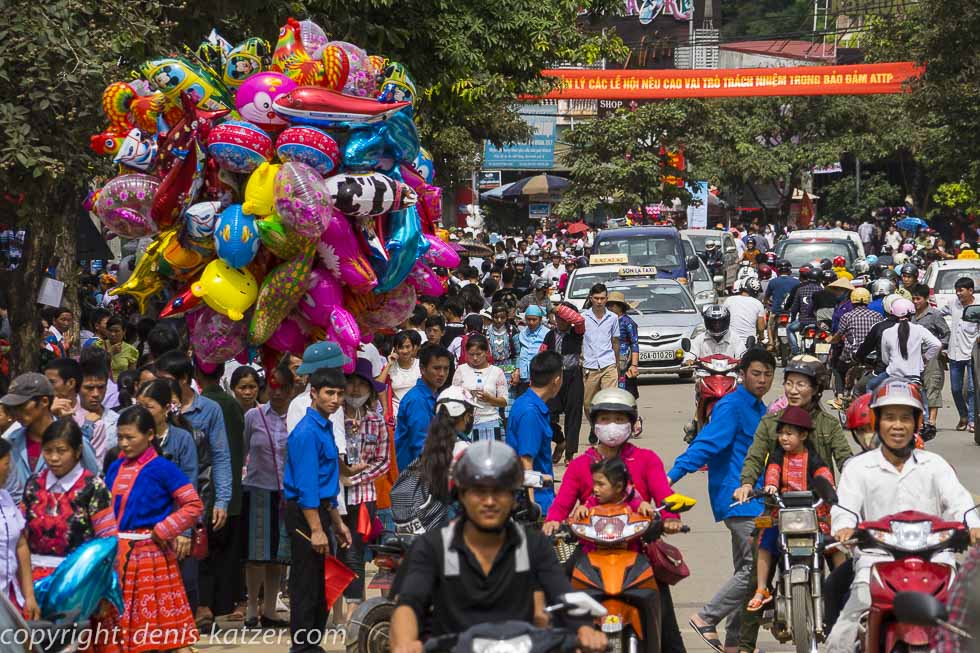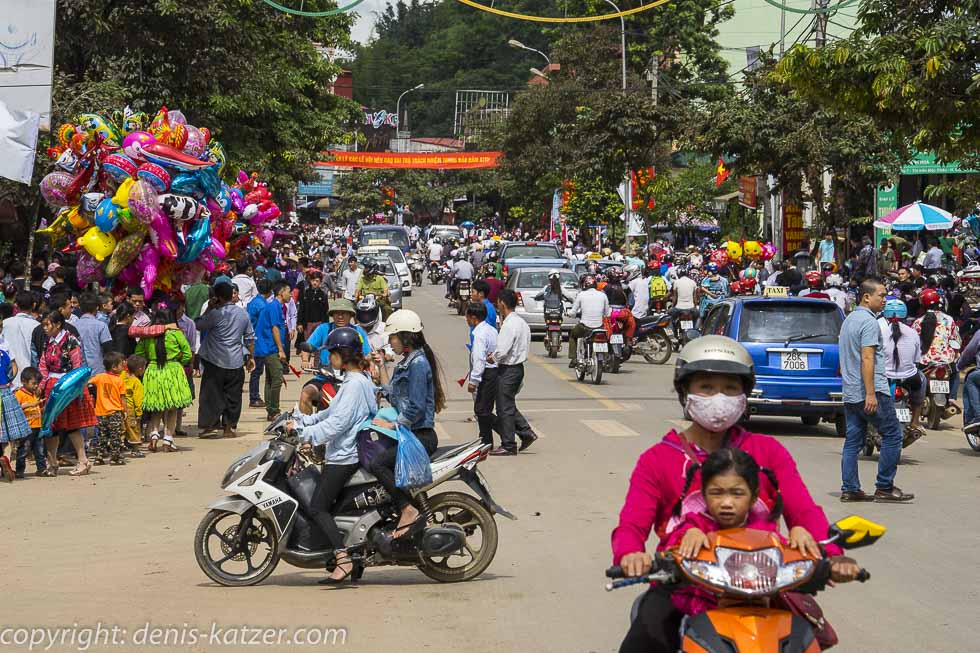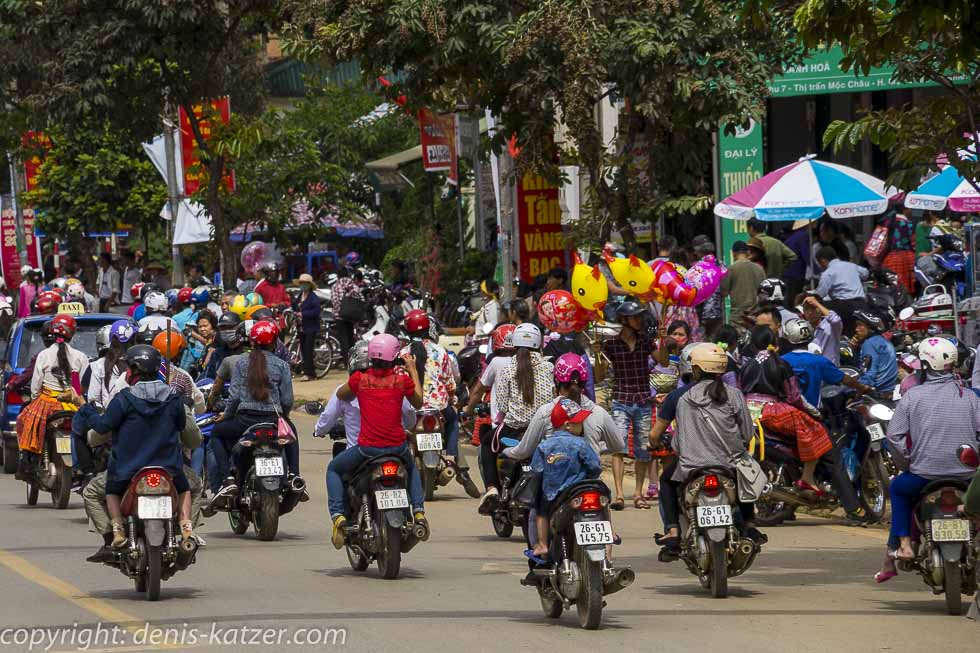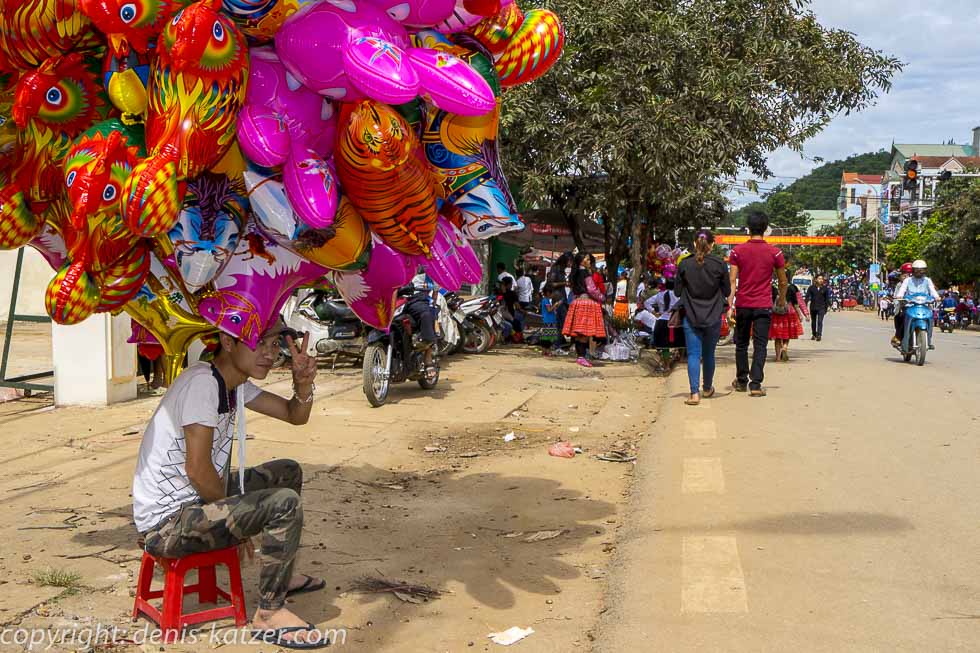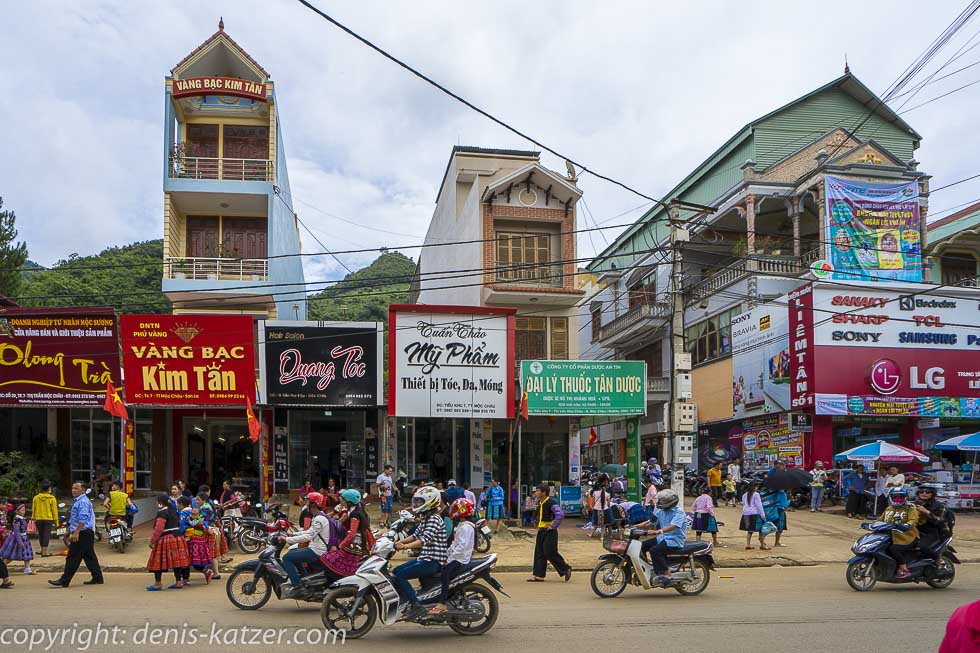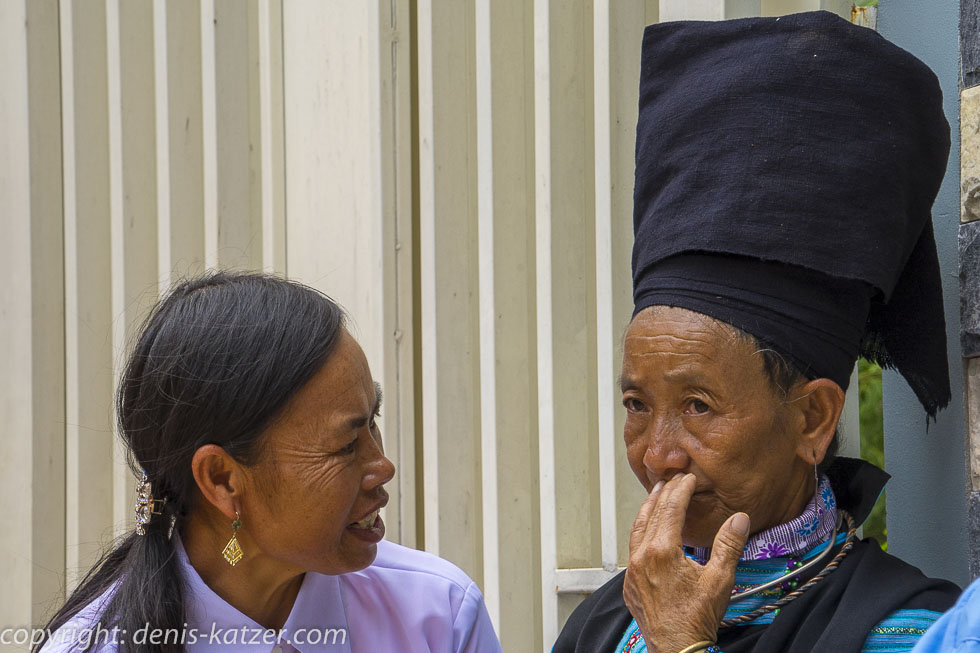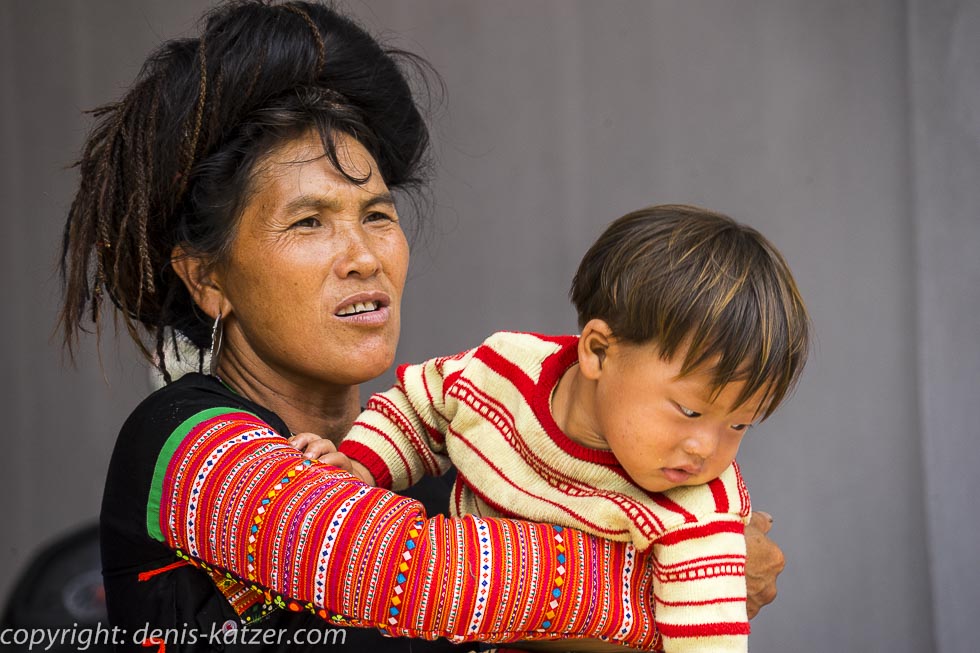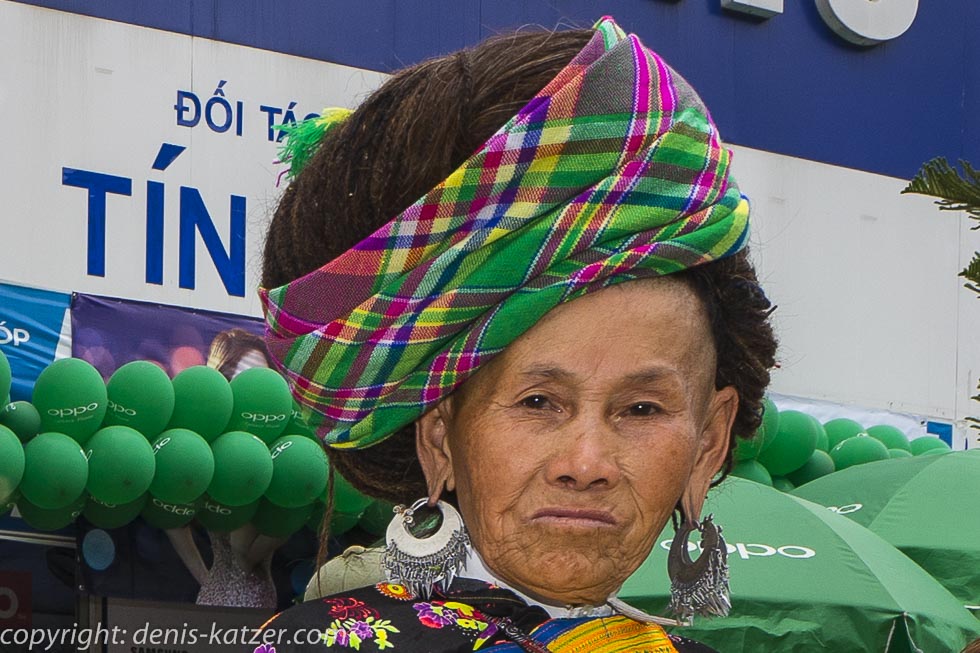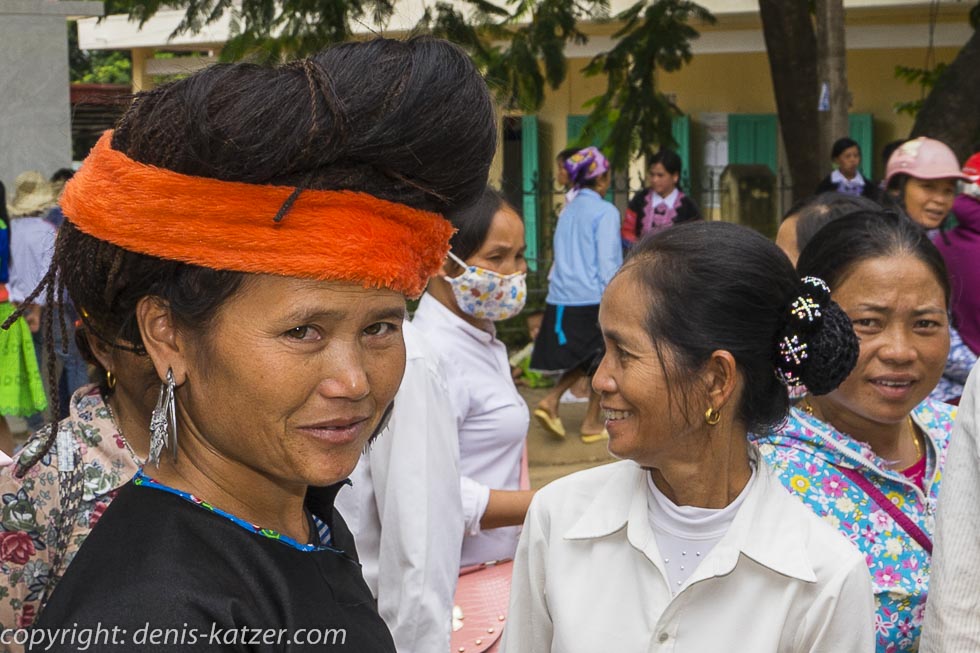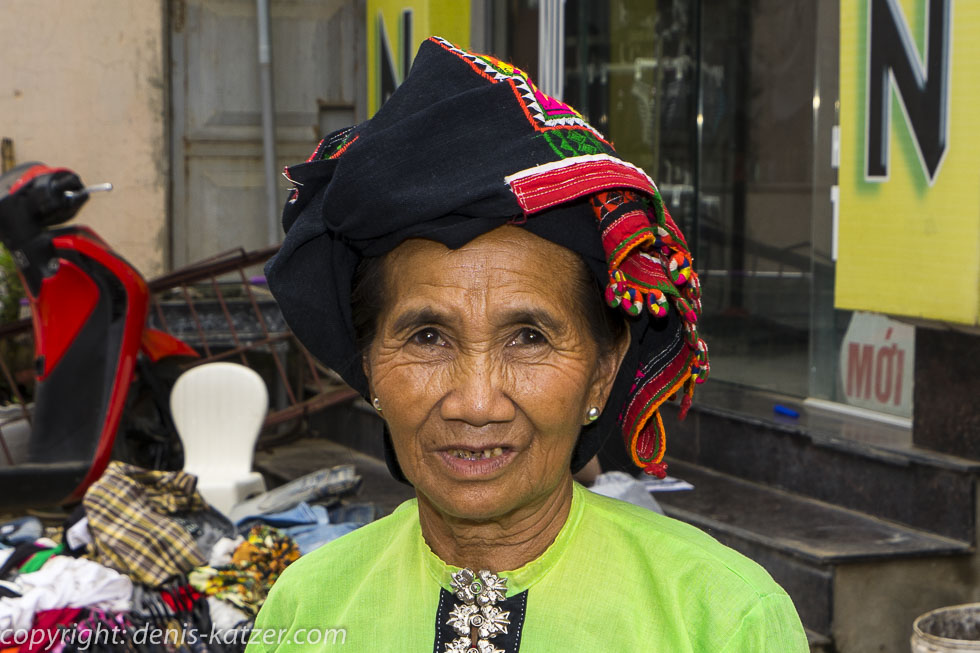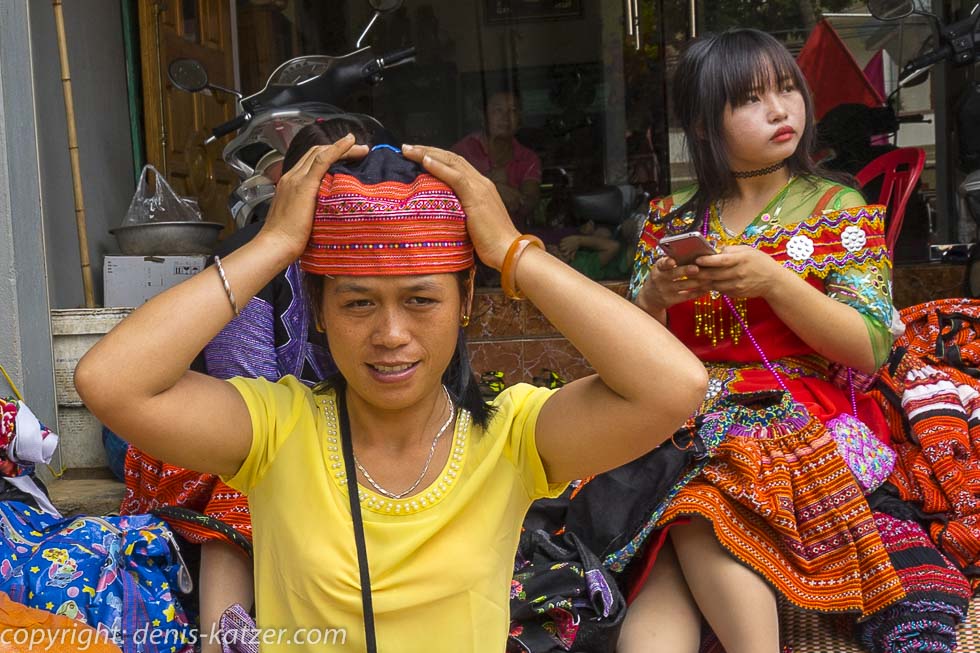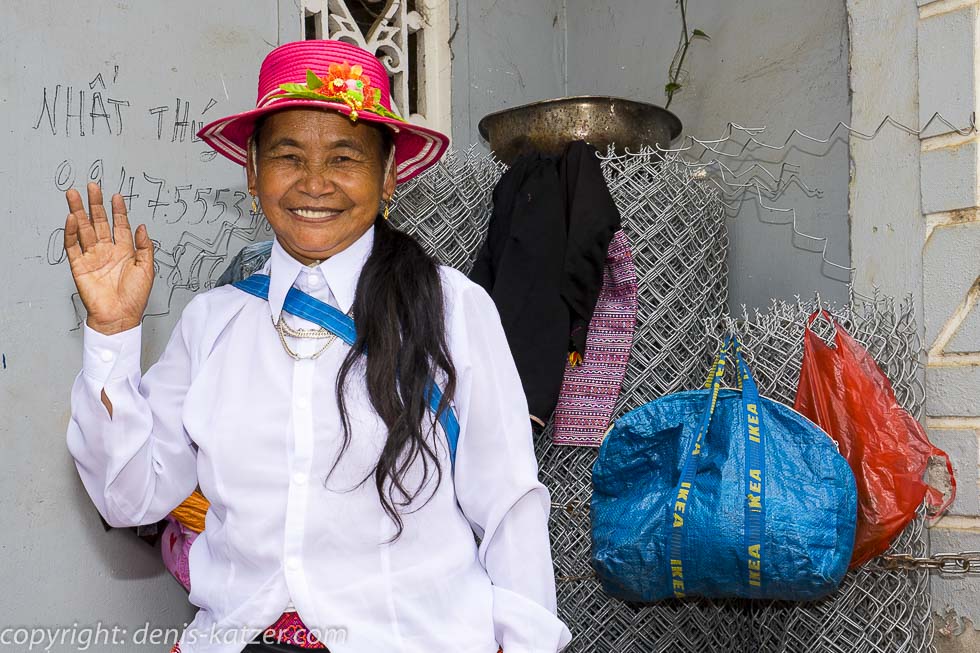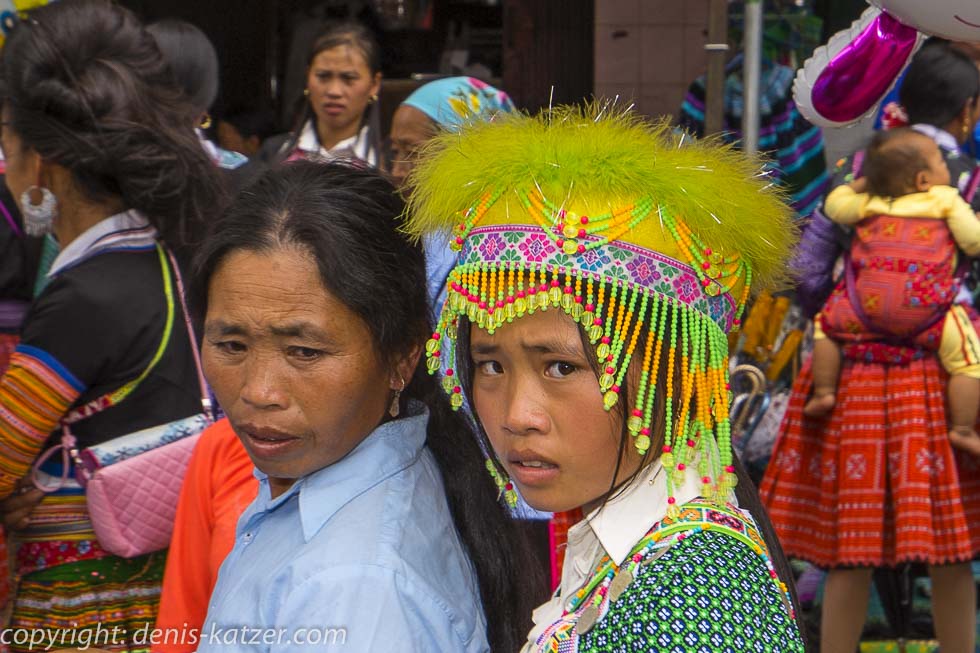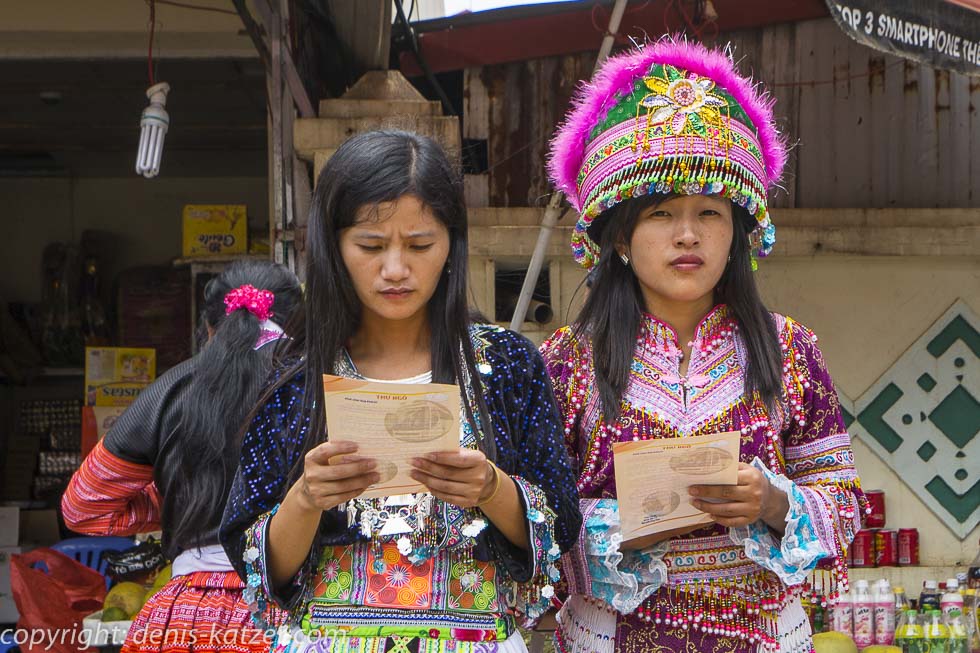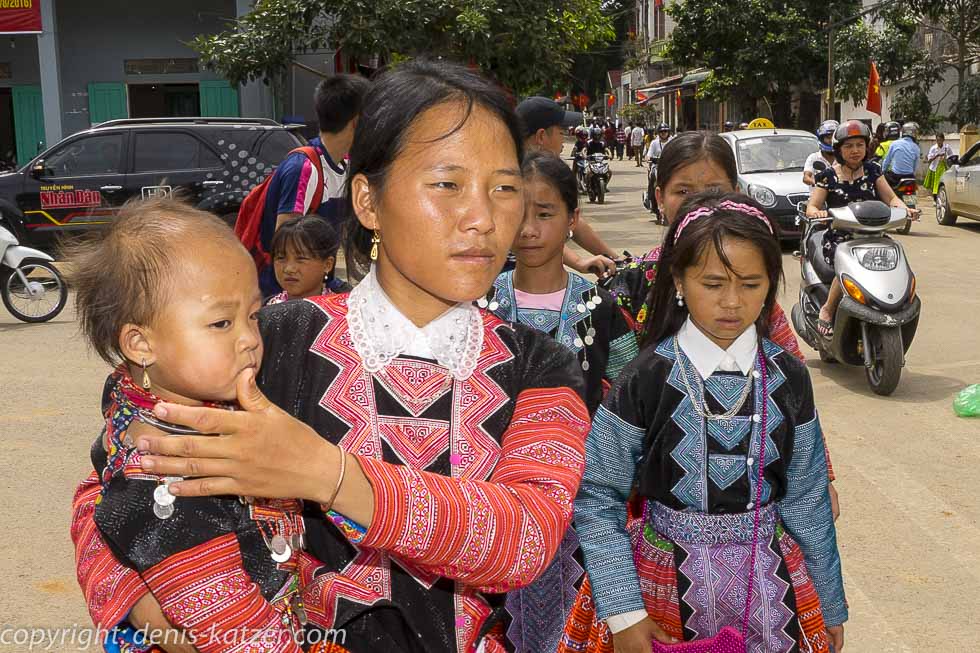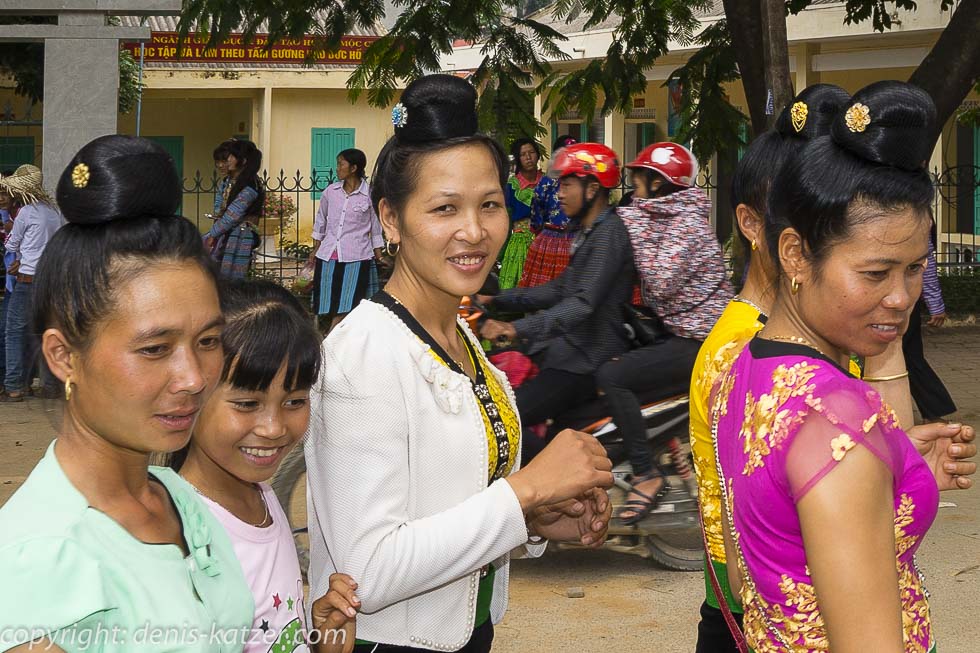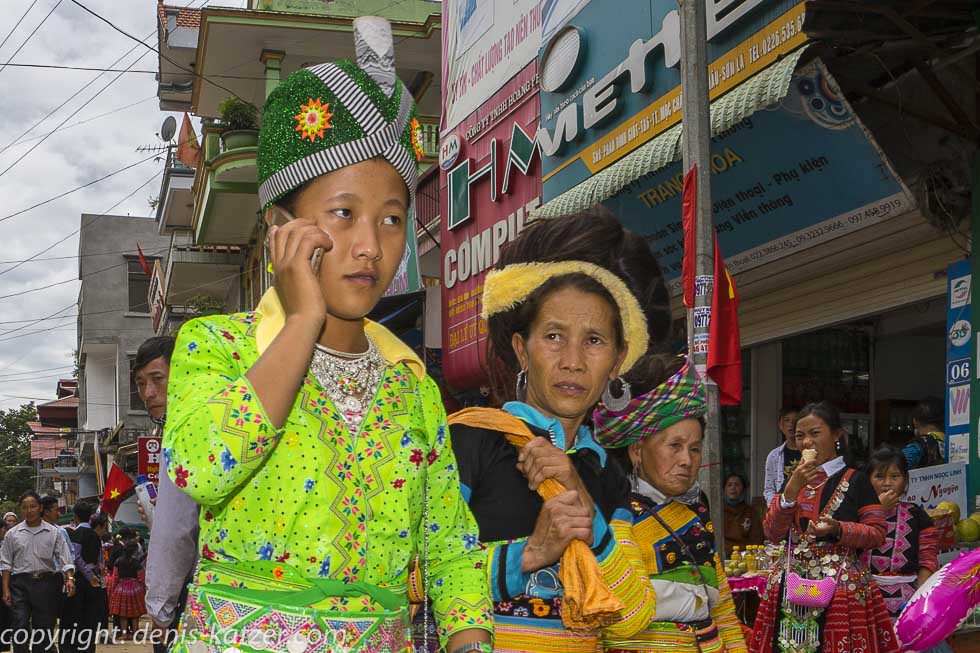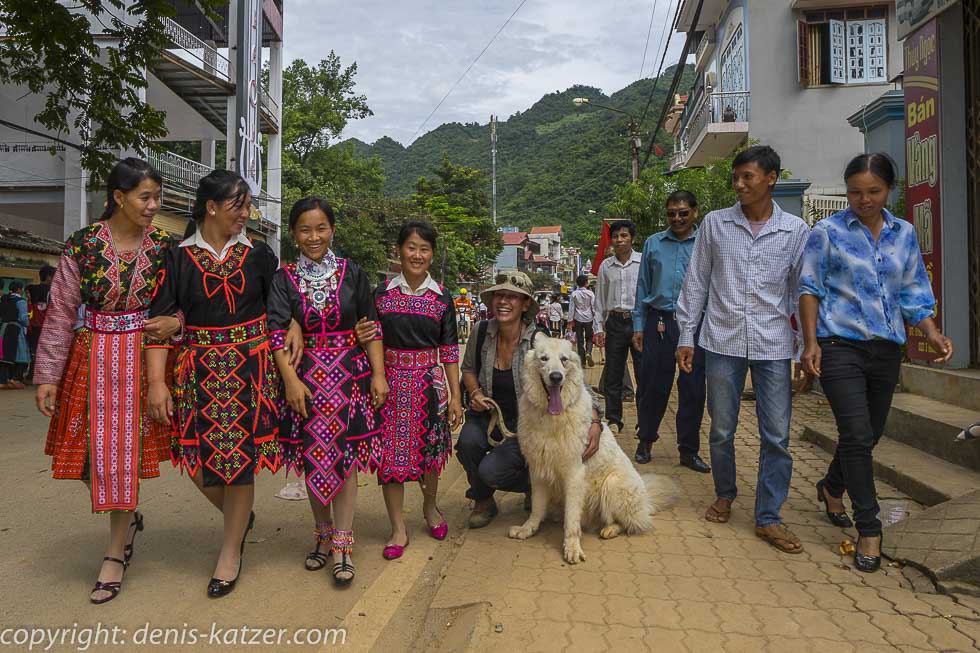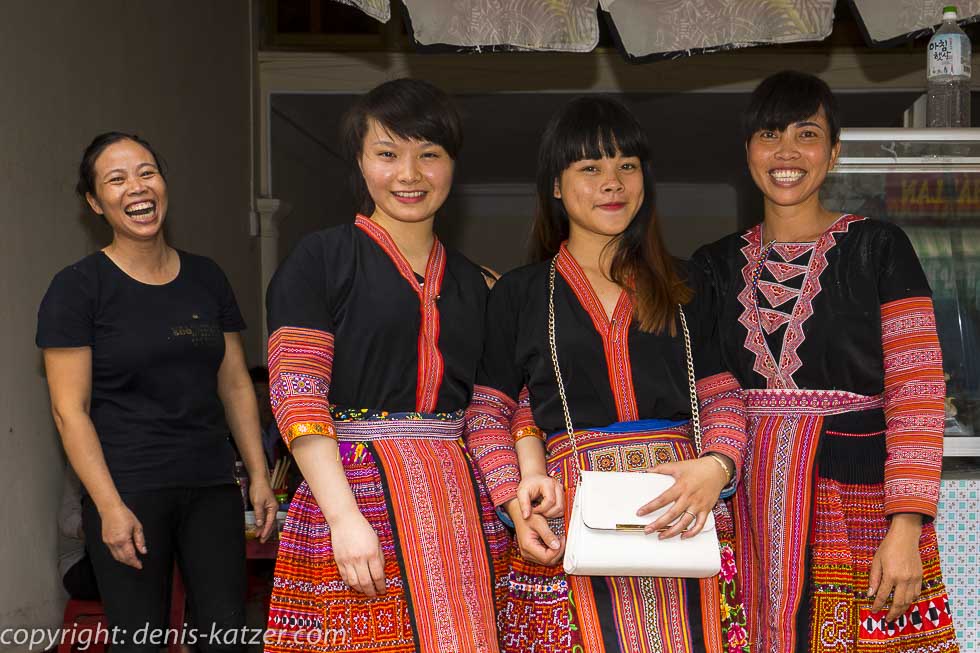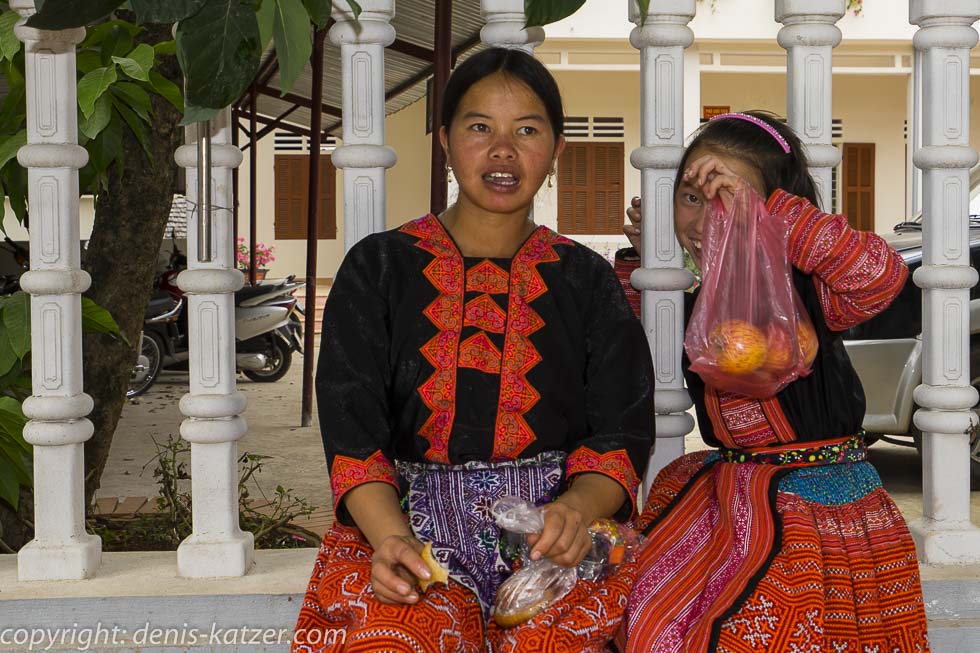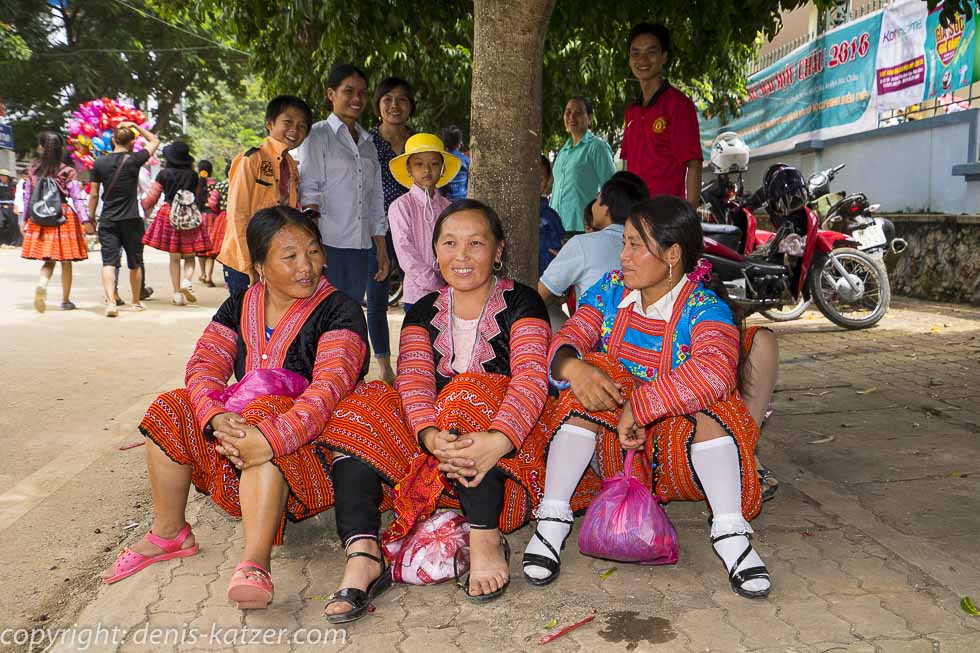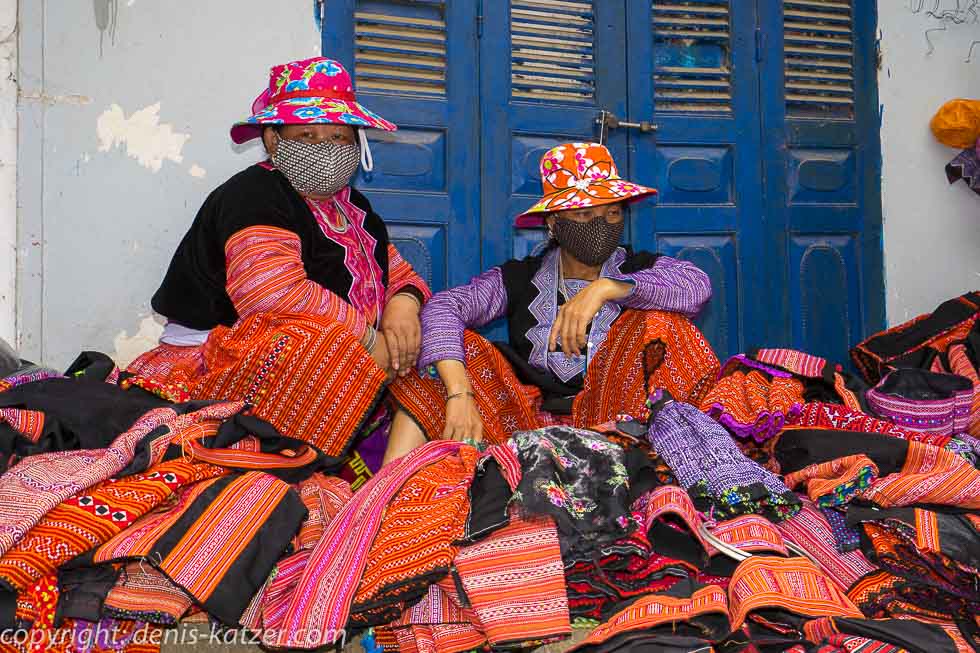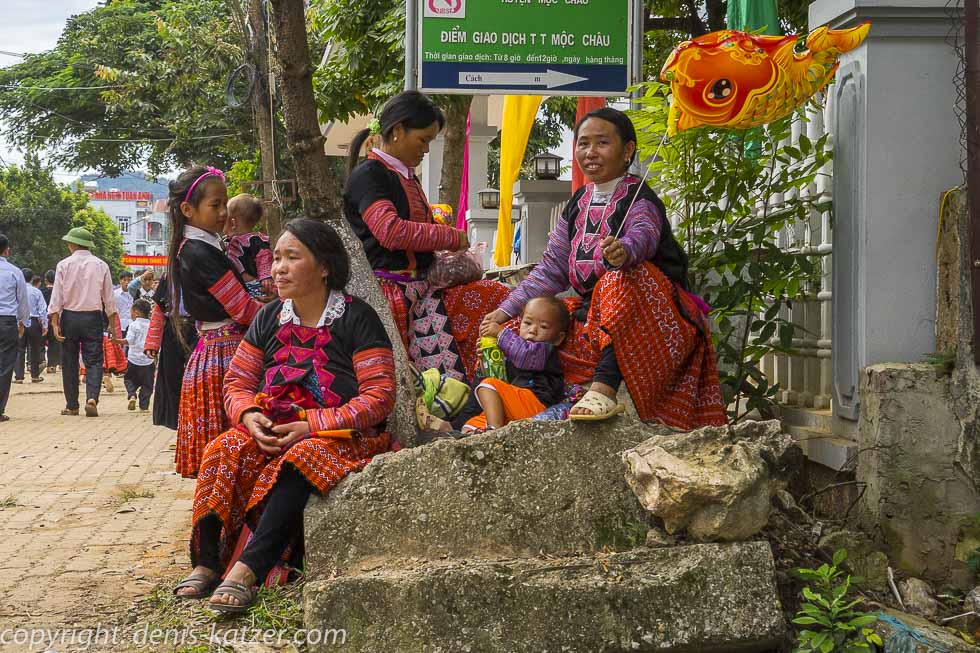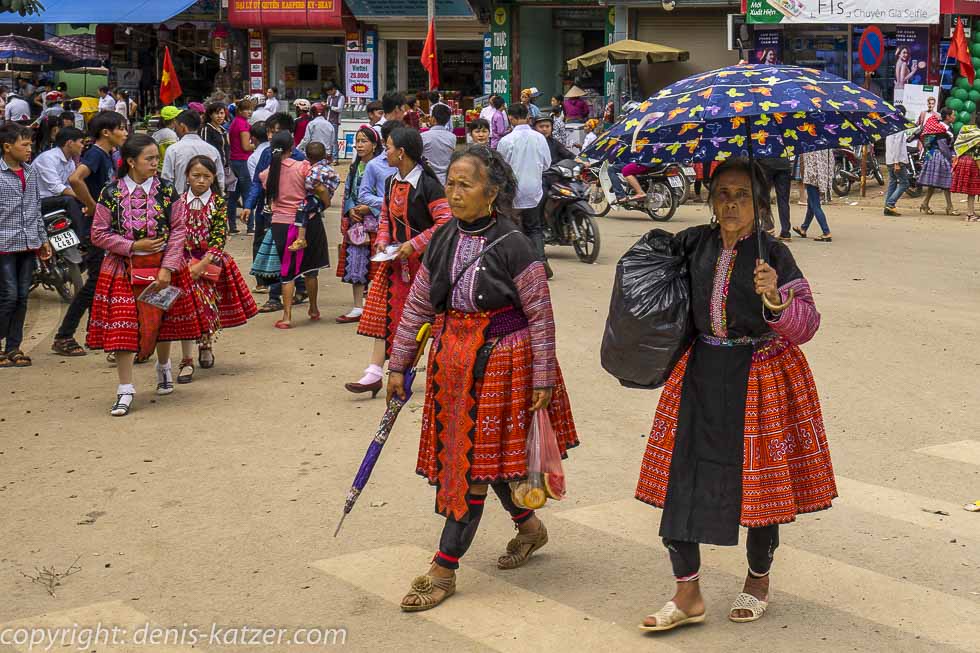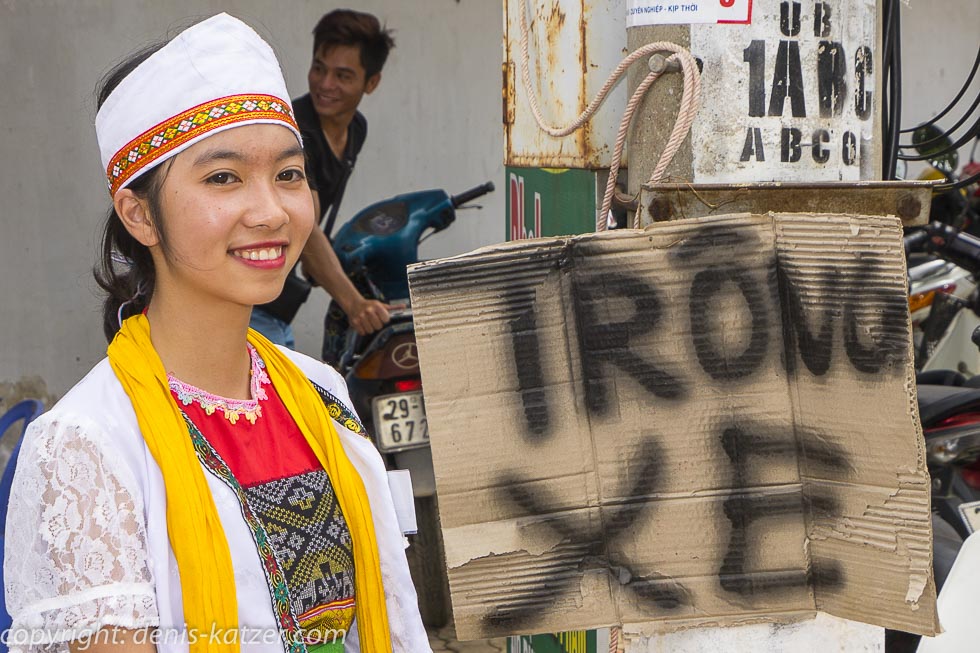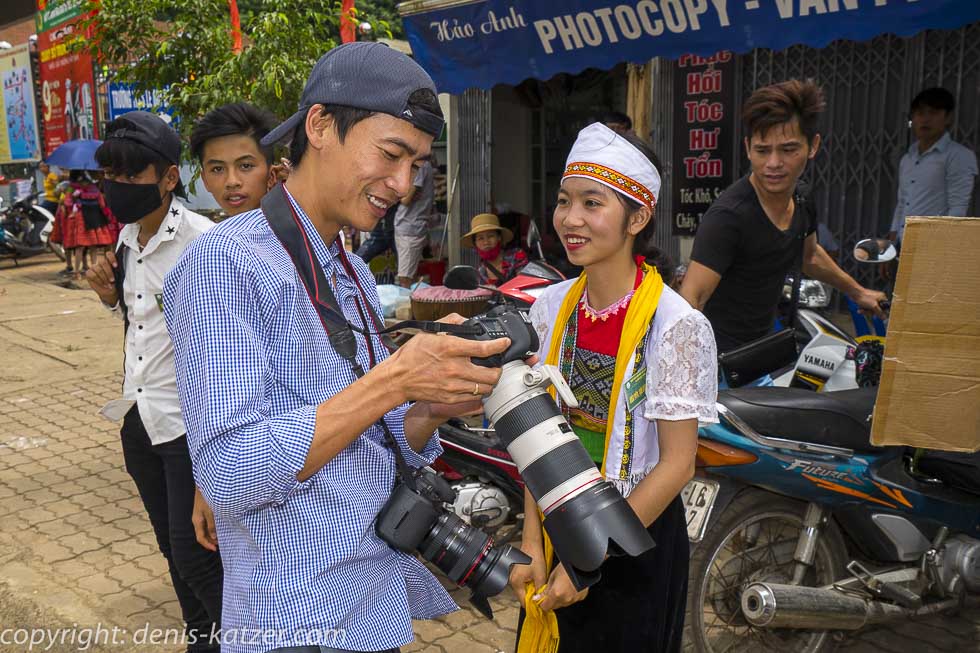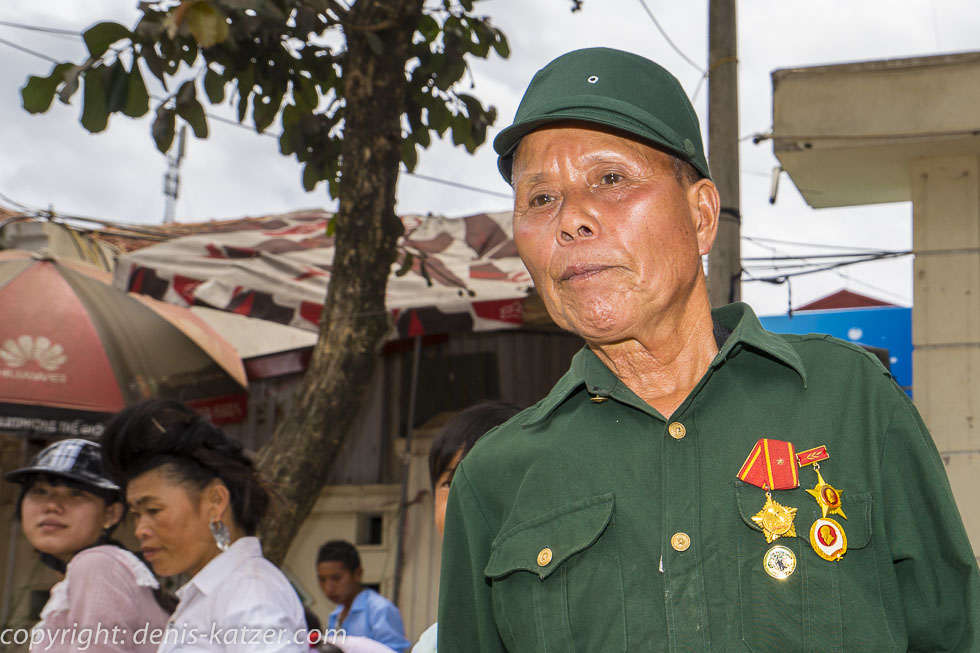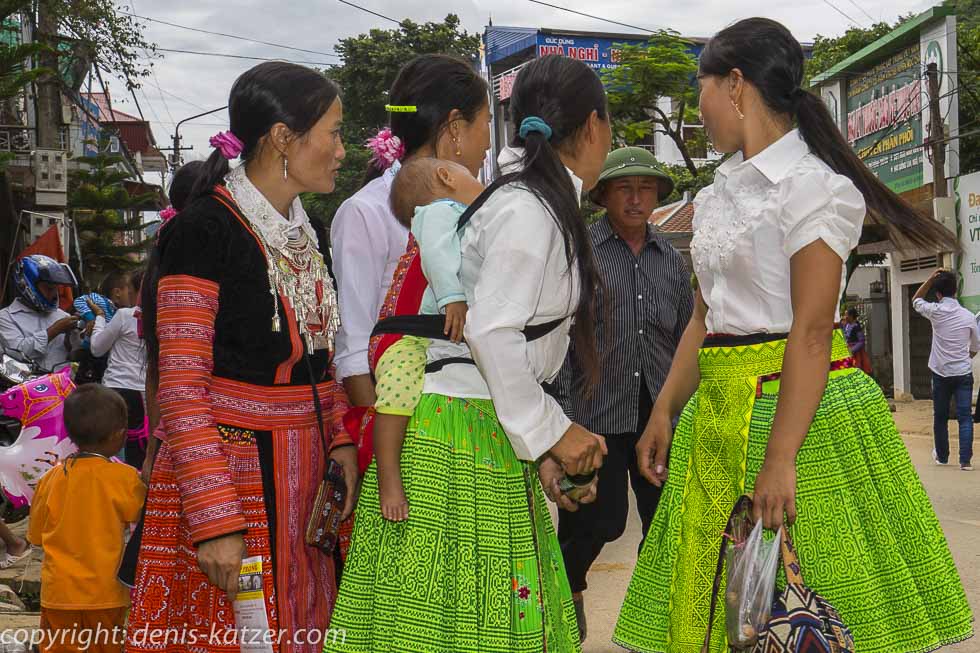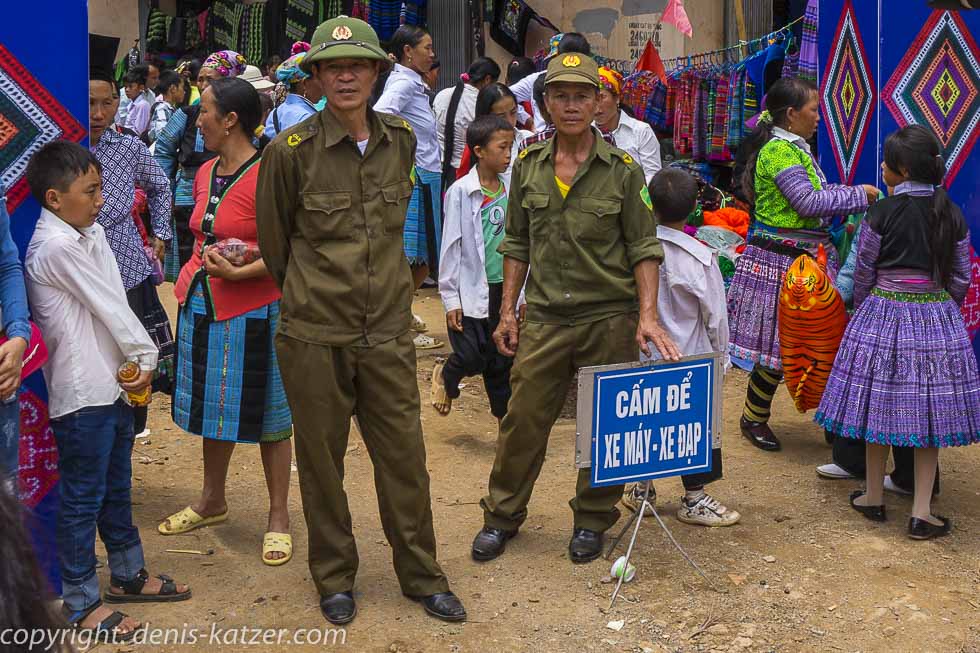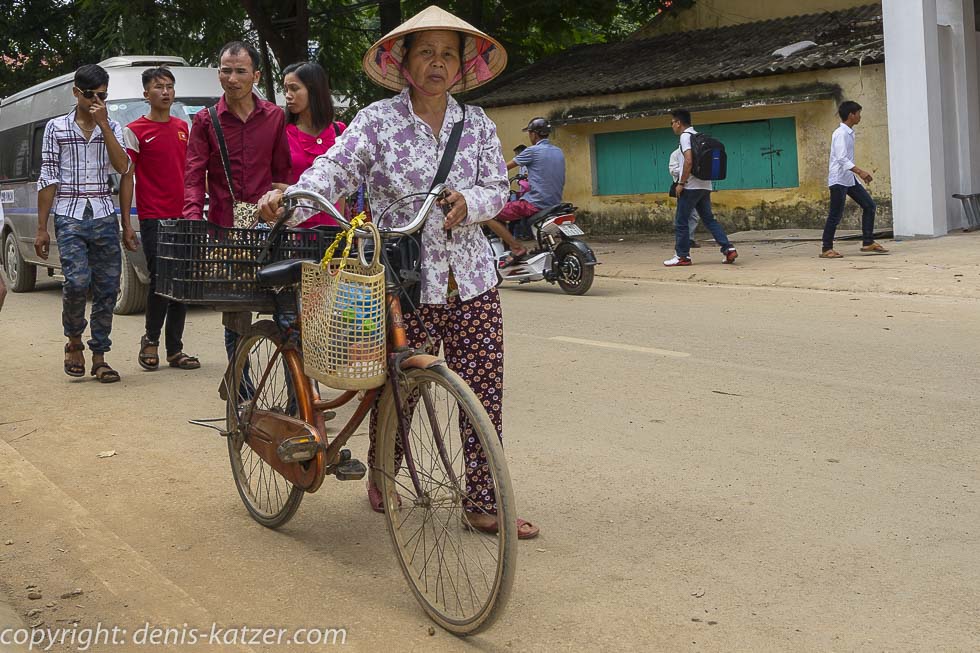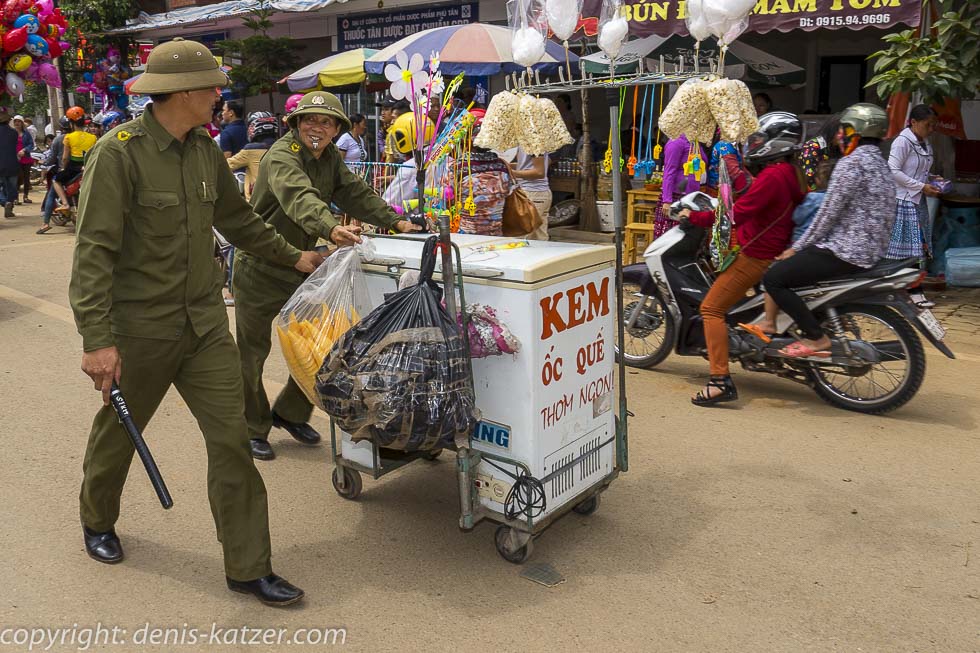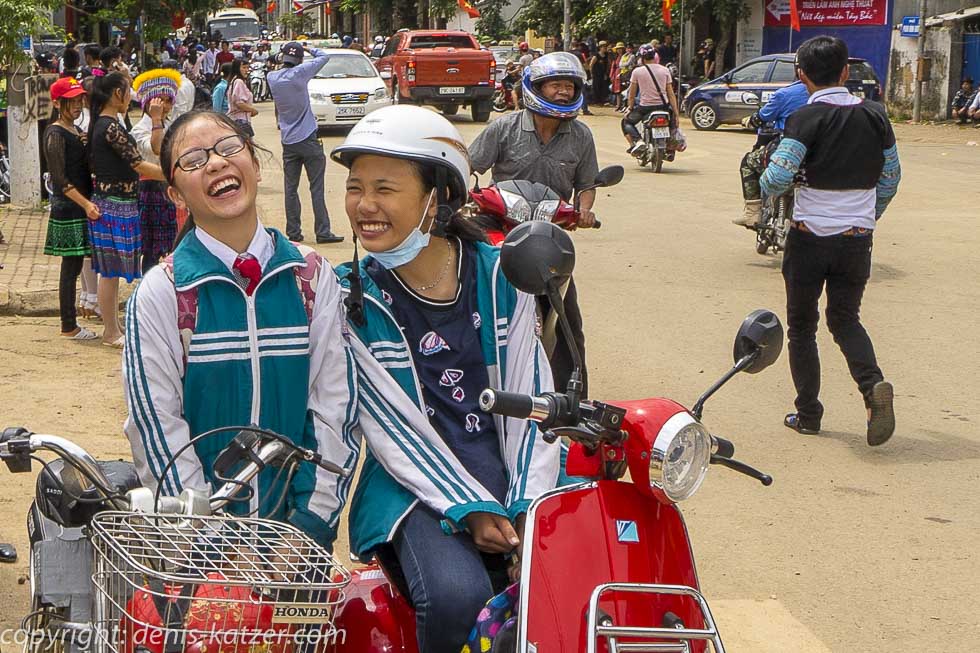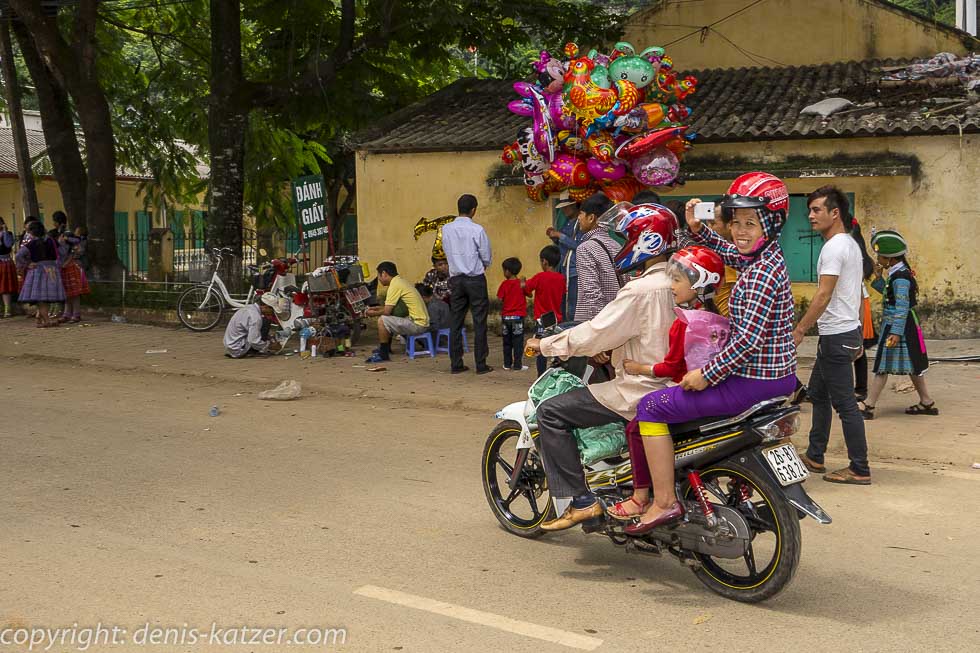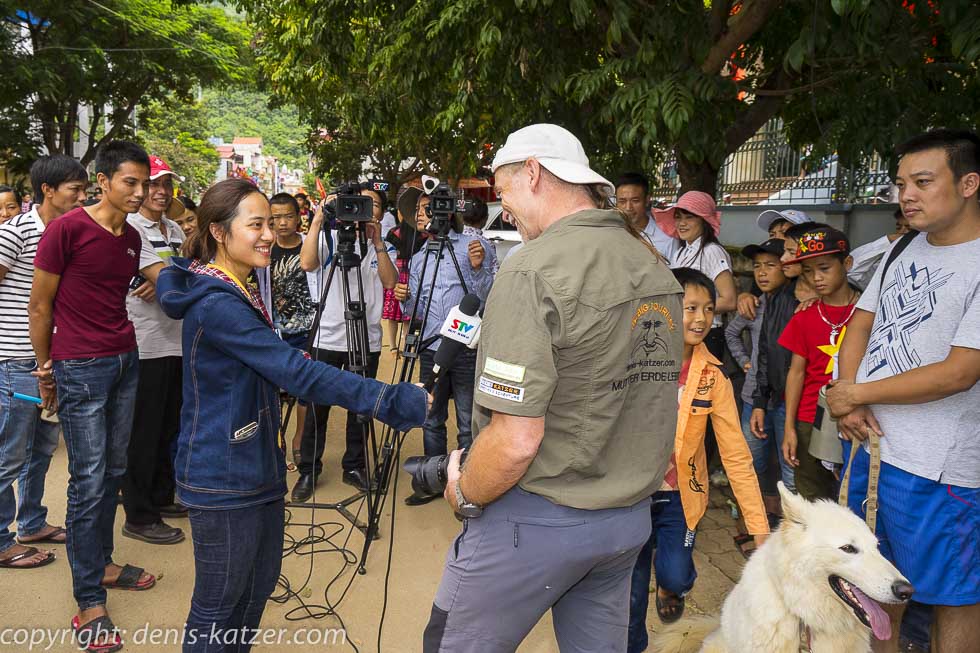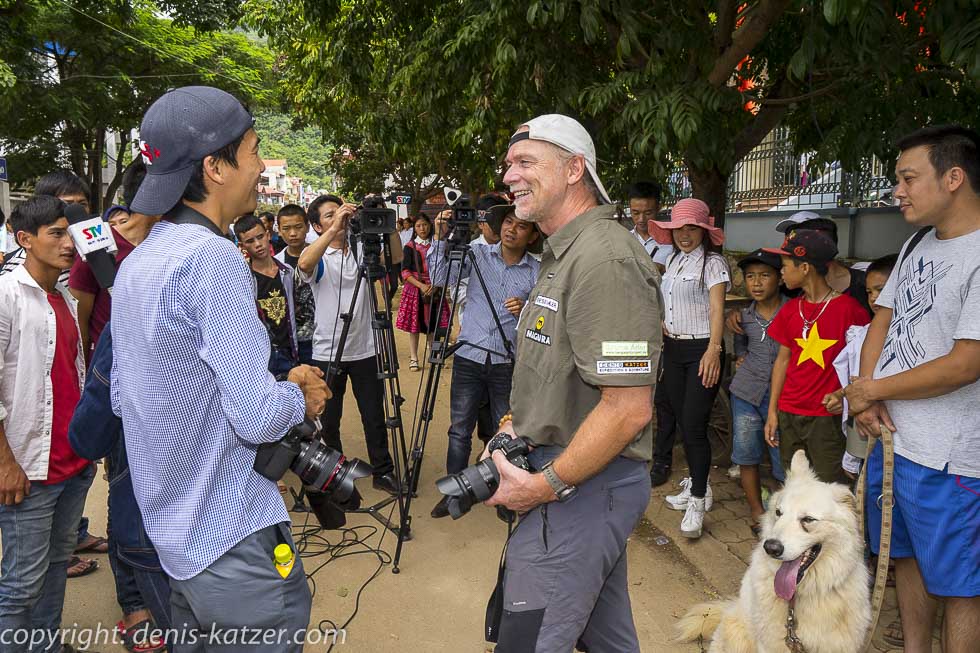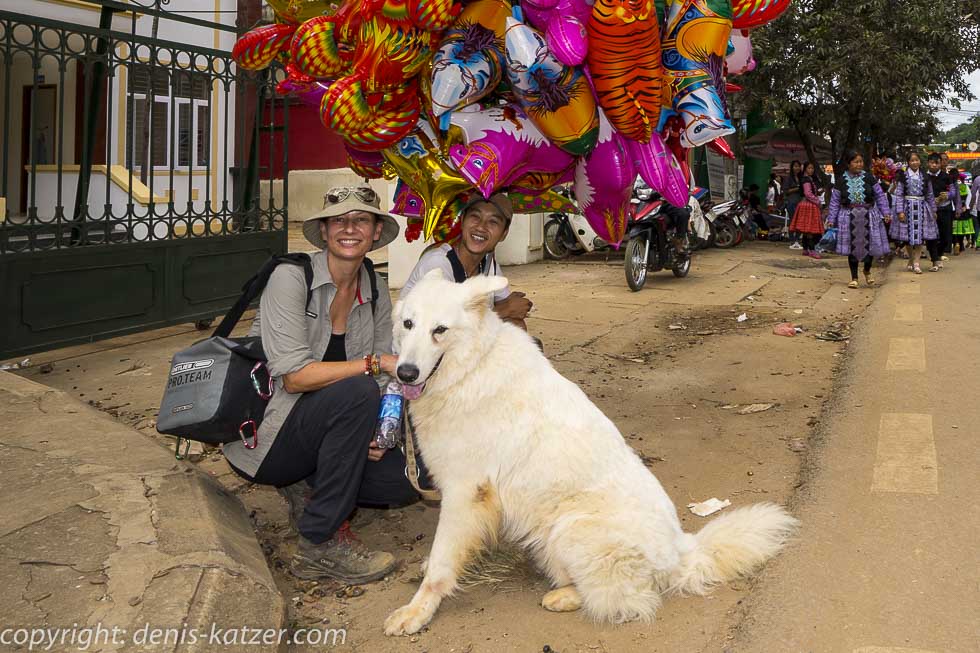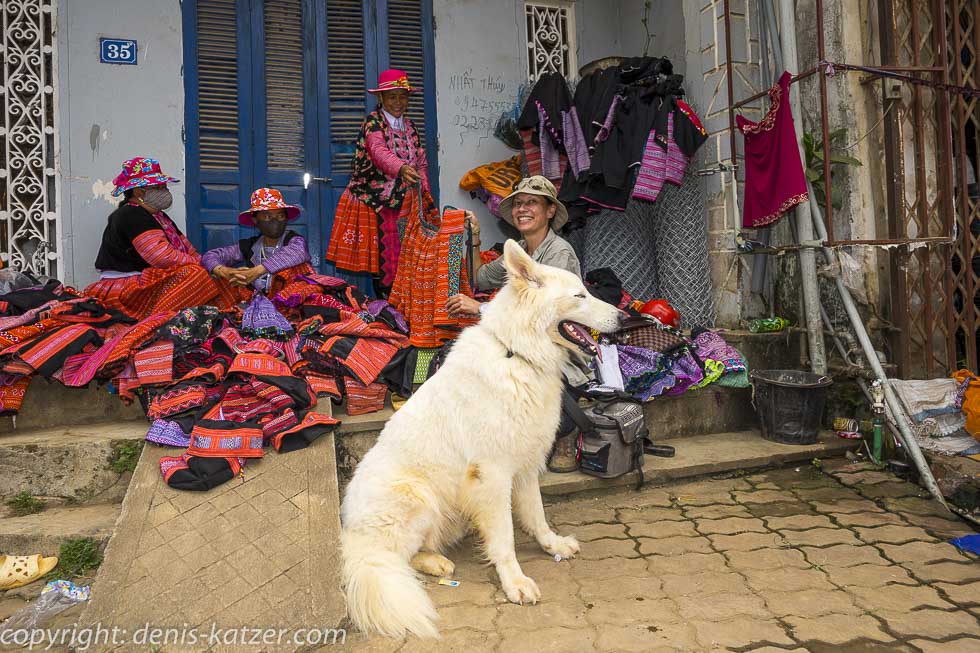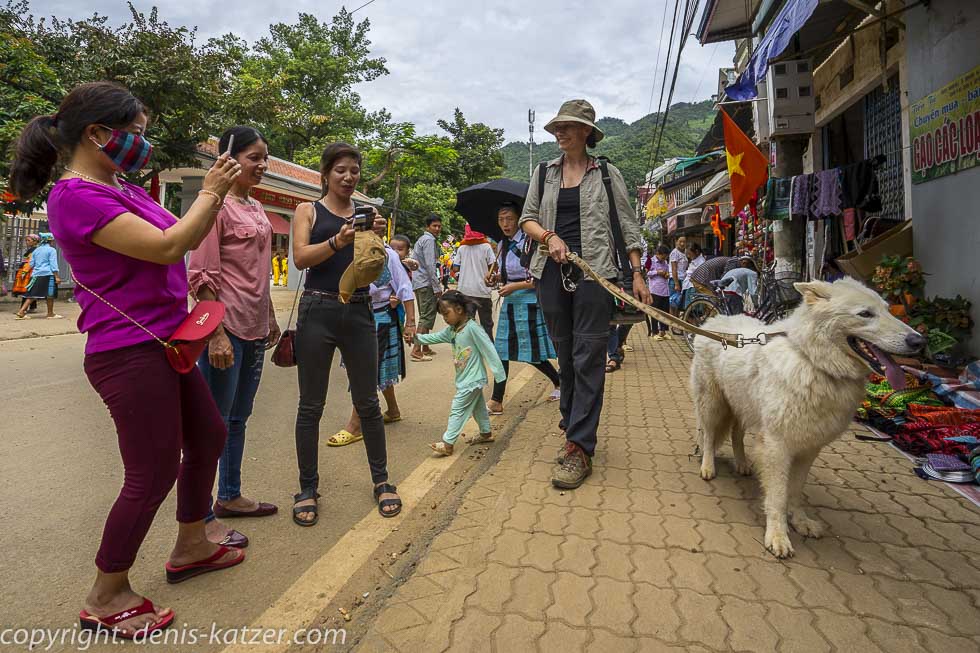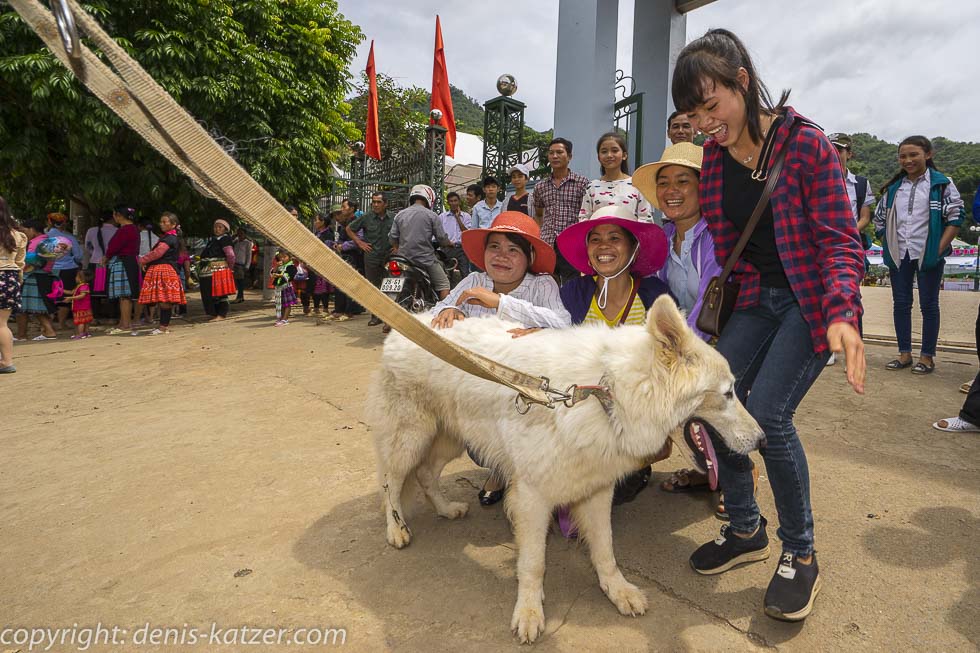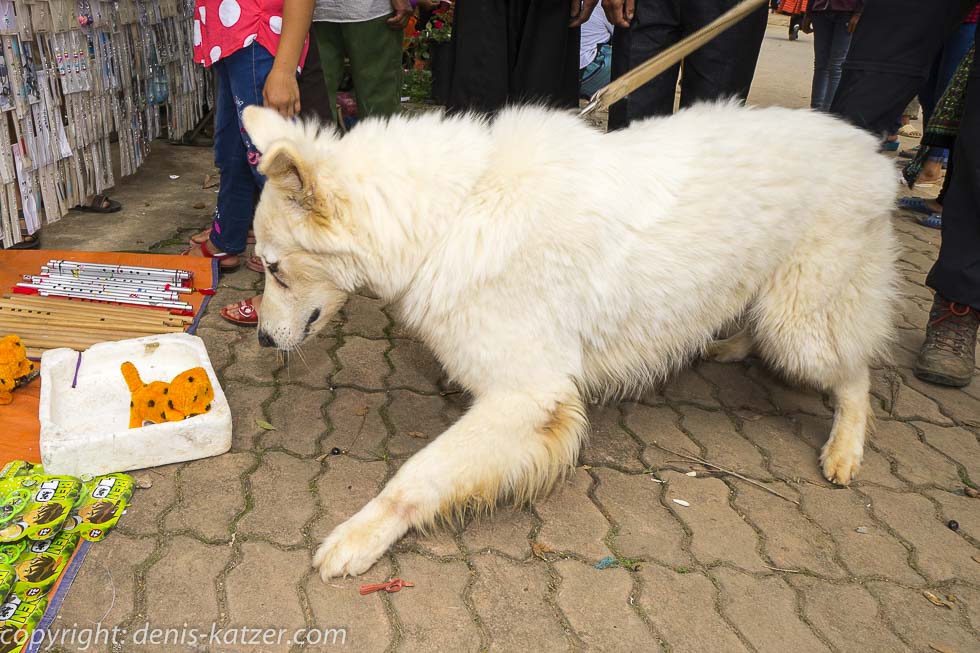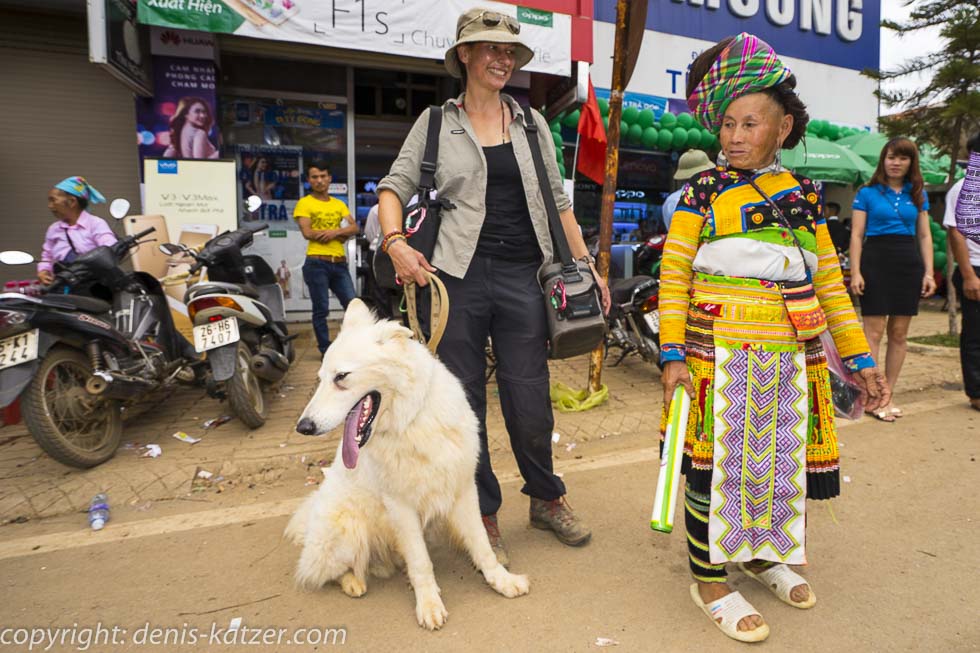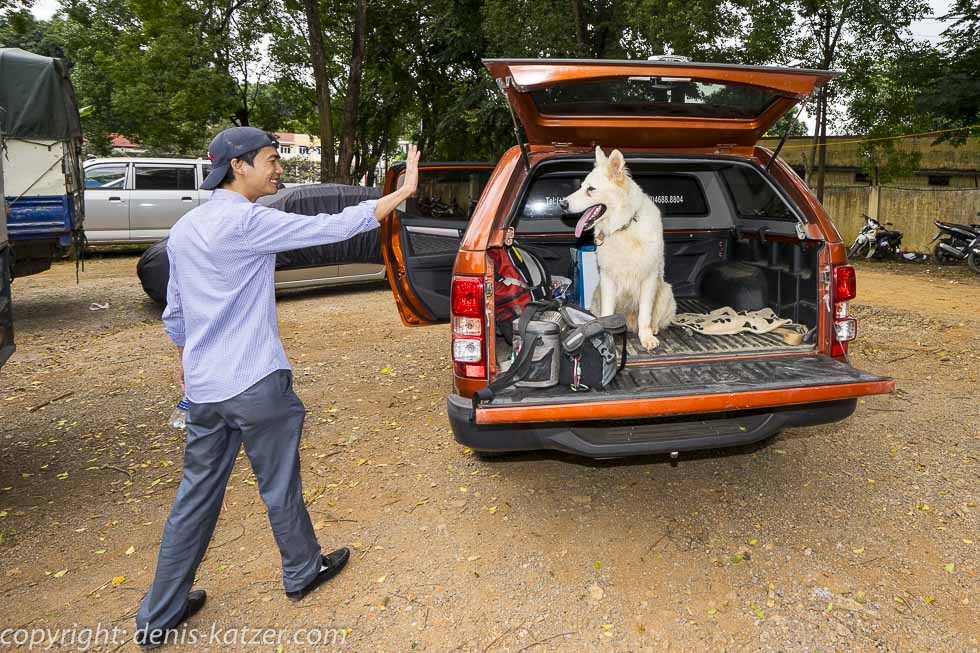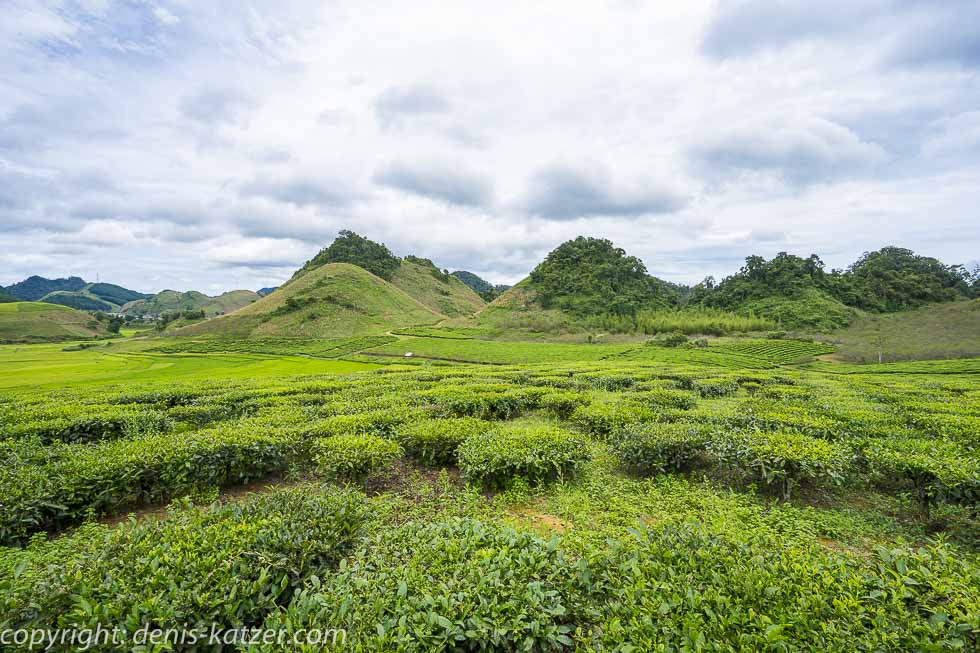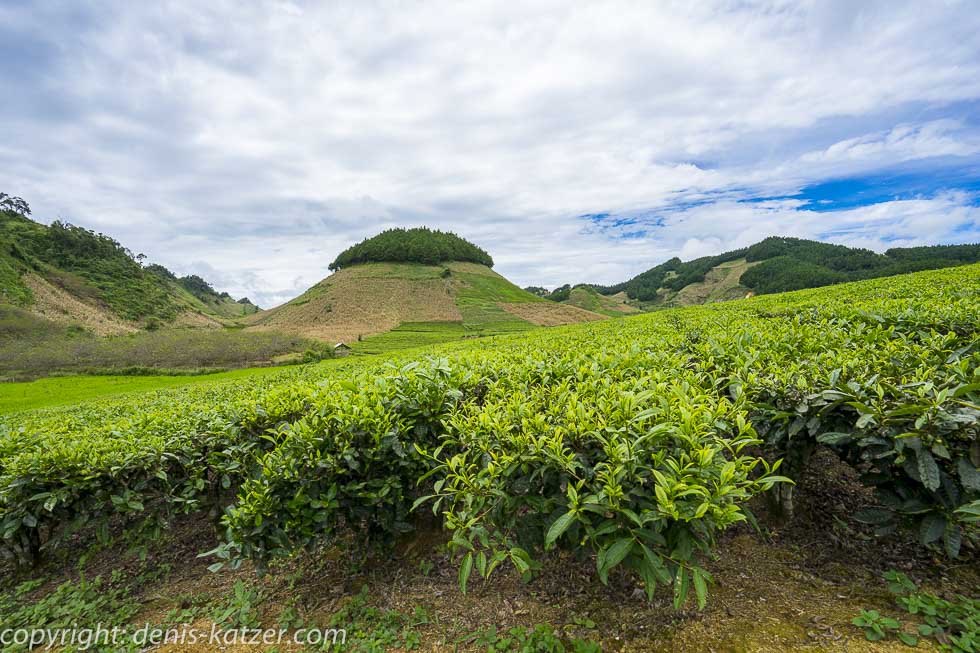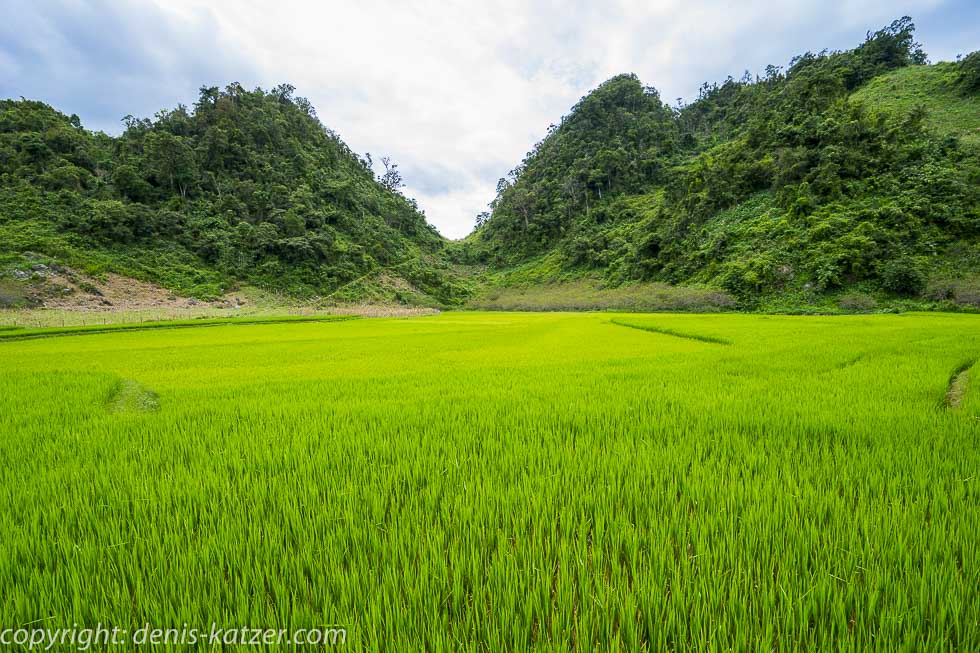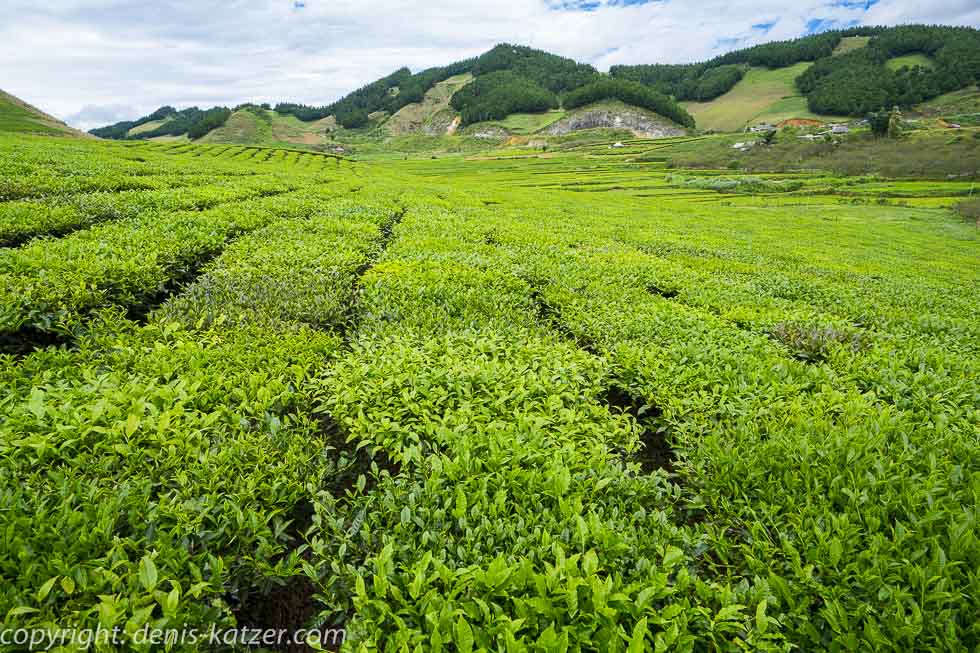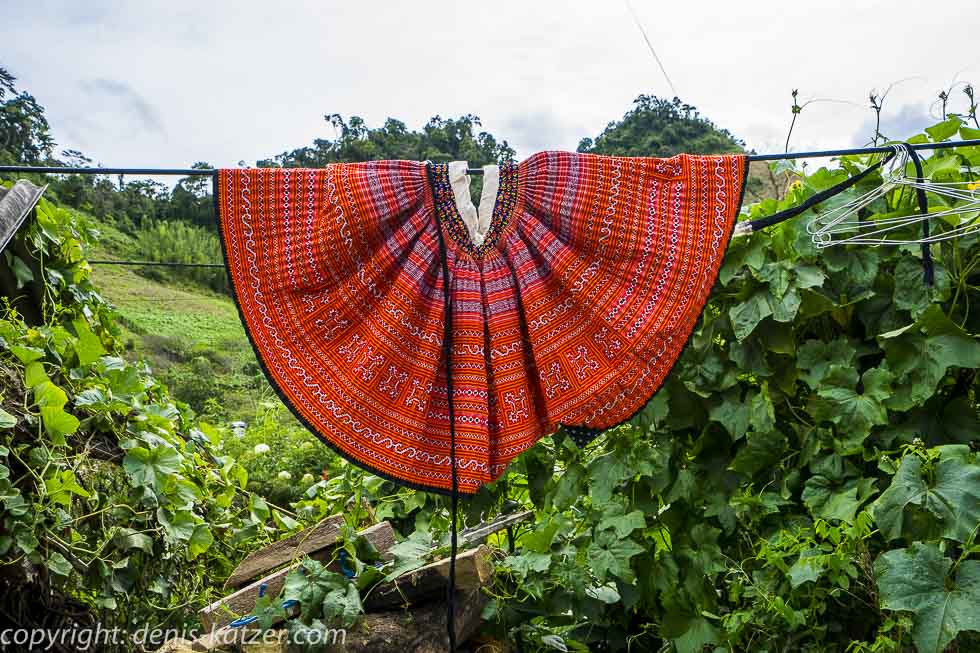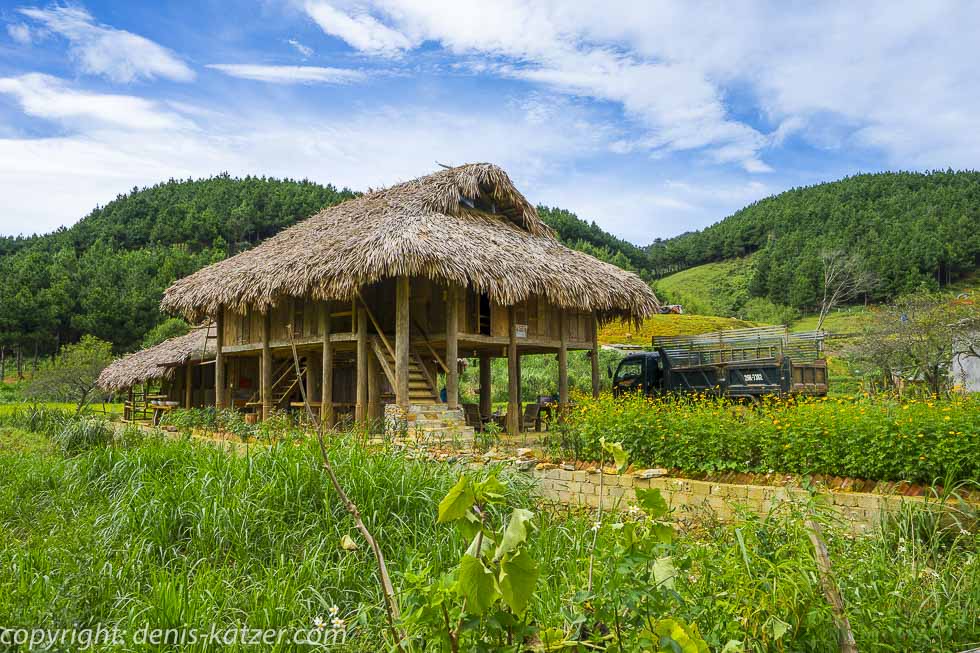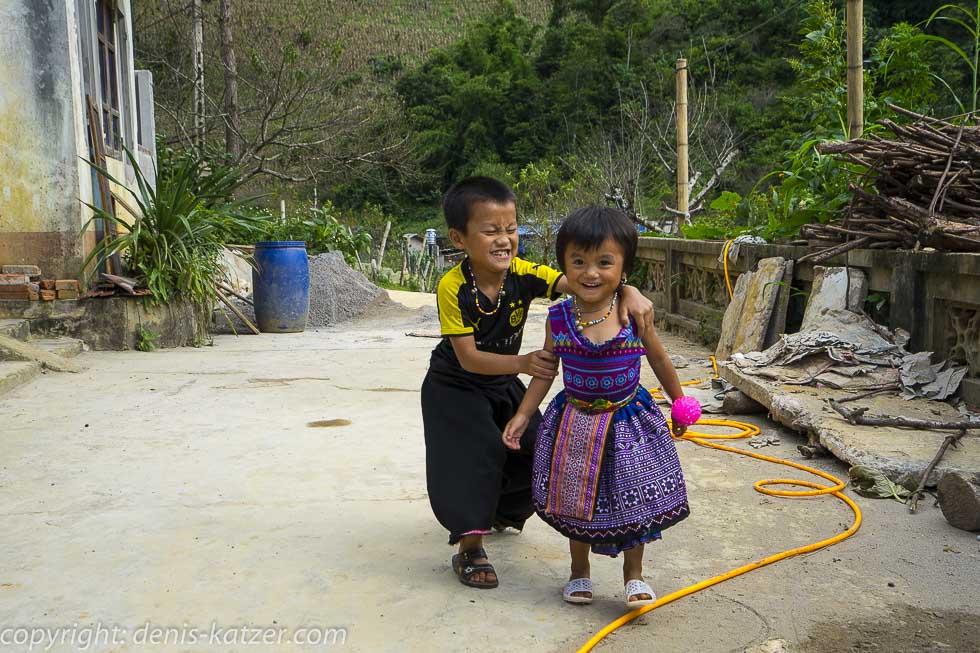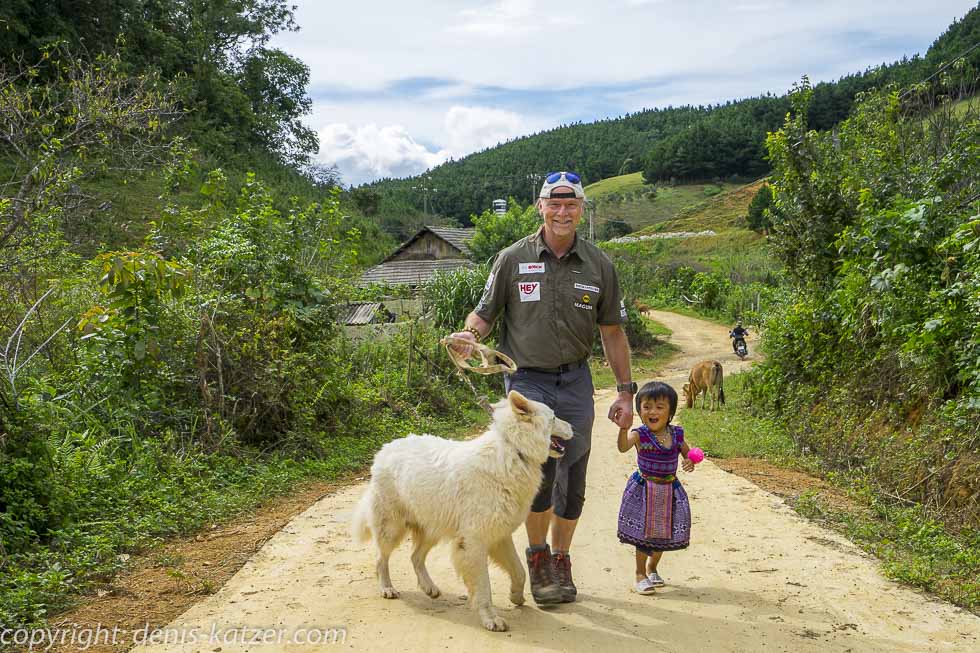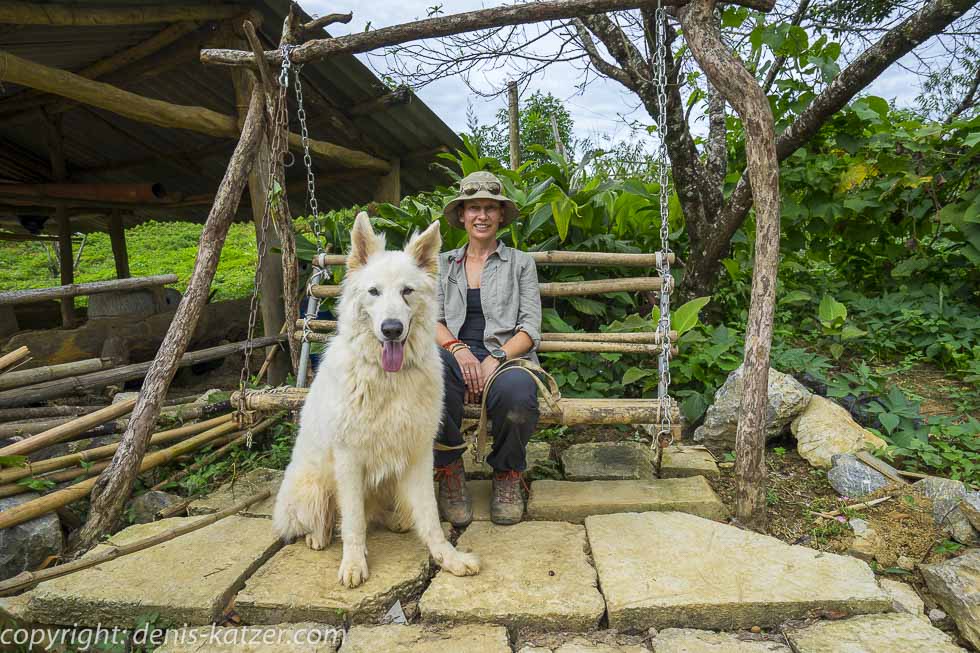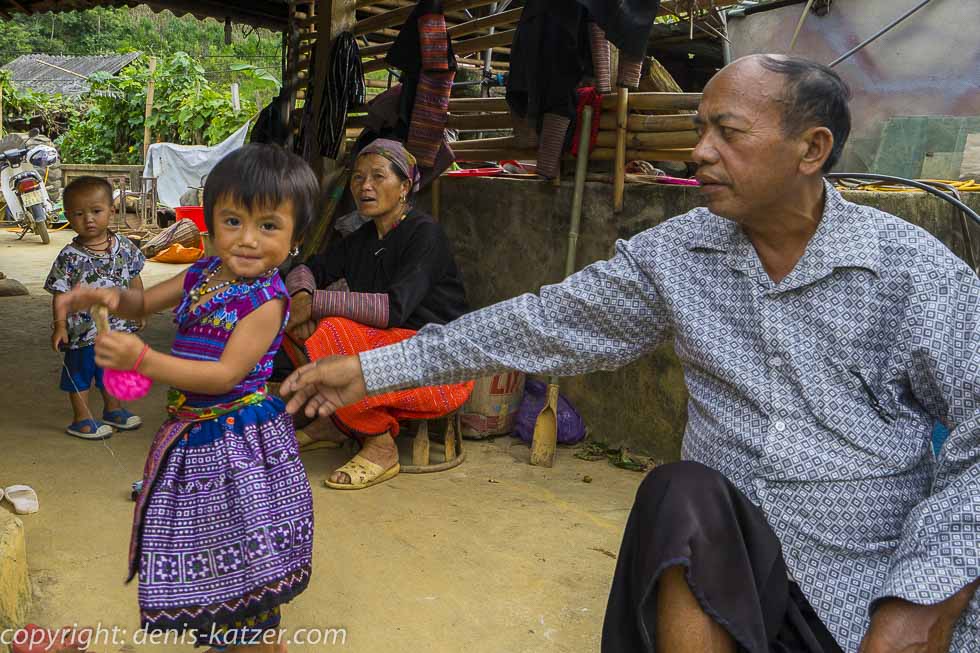
From poor wretch to resort owner – Lovemarket and corruption
N 20°50'40.3'' E 104°38'28.1''
Date:
31.08.2016 until 01.09.2016
Day: 432 – 433
Country:
Vietnam
Province:
Hòa Bình
Location:
Moc Chau
Latitude N:
20°50’40.3”
Longitude E:
104°38’28.1”
Daily kilometers:
180 km covered by car
Total kilometers:
18,346 km
As the crow flies:
45 km
Soil condition:
Asphalt / gravel
Maximum height:
1.200 m
Total altitude meters:
54.661 m
Sunrise:
05:44 h – 05:45 h
Sunset:
6:19 pm – 6:18 pm
Temperature day max:
28°C
Temperature day min:
21°C
(Photos of the diary entry can be found at the end of the text).
“We were poor and had nothing,” Manh suddenly begins to tell us. Sitting under the stilt house, we listen to his story. My grandfather was once a very rich man. Perhaps the richest in this province. He lived in a real palace, while everyone else lived in bamboo houses. In Vietnam, which was already communist at the time, he was responsible for issuing food coupons, which enabled the population to buy the simplest food. My father, who inherited a lot of my grandfather’s money, brought through the entire fortune, leaving us completely impoverished. He had a top education, was supposed to become a pilot and gave it all up. He became addicted to gambling and drank alcohol regularly. In the evenings when he came home, he sometimes hit my mother, who separated from him because of it and later became a nun. Somehow, everything had gone off the rails. My mother, sister and I lived in a simple hut without electricity, running water or furniture. At some point, out of sheer frustration, I simply ran away and didn’t tell anyone where I was going. I found a job as a waiter in Sa Pa. Alongside my work, I went to school several times a week to learn English. I thought that only with this foreign language would I be able to break out of my miserable situation. Progress was slow, but my life got a little better. At least I was earning my own money for the first time. I sent most of it to my family. One day, my sister suddenly stood in front of me and asked me to come back. How did you find me? I wanted to know. ‘The letters with the money you sent us had Sa Pa stamped on them. So I went in search of you.’ I relented and went back with her, but the situation at home was unchanged and hopeless. So I left again and asked her not to look for me. This time I moved to the big city of Hanoi. I wanted to look for a job there again. But I didn’t know how difficult that would be. I was actually completely broke and only had 200,000 dong (€8) left in my pocket. The cheapest accommodation charged 50,000 dong (€2) for one night. So I wandered around the city looking for somewhere to sleep. Let me tell you, it was really frustrating and relatively hopeless. Out of sheer desperation, it was already pitch dark, I asked a cyclist if he knew where I could find cheap accommodation. ‘My place’, he said. He rented rooms in a simple house for poor burnt-out wretches like me. He showed me a small room on the fourth floor where 10 others were already sleeping on the floor. They were lying there like fish next to each other. Really terrible. But for only 10,000 dong (€0.40) a night, I was glad I didn’t have to spend the night on the street. Because I didn’t want to squeeze in next to the sweaty bodies, I climbed the steps to the roof and lay down on the floor next to mountains of dirty laundry.
The next day I walked through the streets of this terrifying city in search of work. I found a hotel and asked a man in a black suit if he could give me a job. Thought he was the owner of the house. But he was only the porter. He just laughed at me and so I moved on. Nobody gave me a job. One of the reasons for this was that I had no papers to prove my identity. No papers, no work. But how could I get identity papers without money? It’s a terrible cycle. After days of searching, I sat on the roof of the house again, completely disillusioned. I was almost out of money. So I wrote a letter in English to explain my situation. I showed this letter, which proved that I spoke English, to the owner of a hotel. The man looked at me skeptically. You will not regret it. I do everything and work hard, I said.”
Suddenly Manh stops talking and looks down at the floor with his head bowed. Tanja and I look at each other a little uncertainly and wait to see how the story continues. Manh suddenly wipes the tears from his cheeks and begins to sob slightly. “Excuse me,” he says, gets up and leaves the square. Ten minutes later, he has regained his composure but is unable to continue his story. We don’t ask because we feel that now is not the right time.
Days later, on a car ride together, I ask him sensitively how his story with the hotel turned out. “Ha, ha, ha, yes, I actually wanted to finish telling you that. So, he asked what I would like to do. I answered everything. ‘Okay, you can start as a security guard for US$50 a month,’ I thought I couldn’t believe my ears. ‘But first you go to the hairdresser and get a proper haircut,’ he said with a grin. When can I start? I wanted to know. ‘Today,’ he said. The hairdresser took the last of my money out of my pockets, so I started my first job in a real hotel absolutely broke. That very same day, my boss gave me an advance on my wages without having asked him for it.” “So he was a good person?” I interject. “A very good person. I learned a lot there. It wasn’t long before I was promoted to receptionist because the old one was made redundant for some reason. Then I was allowed to accompany guided sightseeing tours and when the need arose, I led the first tours myself. I got a lot of tips and got to know the tourist business. After a year, I was the manager of the hotel. My salary was US$ 500 a month. Later, I opened my own hotel with friends. It went really well, especially our restaurant, where we offered our guests organic chicken. My partners wanted to earn even more money and foist mass-farmed chickens on our guests. I didn’t want to take part in this scam and left the business. After two years, the hotel and restaurant were out of business.”
Manh wanted to be independent. He resigned from his position as manager of the hotel and found the valley near Mai Chau, which was completely unknown to tourists at the time. There he opened the first homestay for tourists, bringing interested guests from Hanoi to the beautiful valley. That was the foundation stone of today’s Nature Lodge. Just a few years later, his business partners are an architect, a film producer and a senior official from the Ministry of Finance. Manh actually made it. He is married to a beautiful woman whose family owns a large, prestigious tree company. He has two lovely children, drives a new SUV and supports poor rice farmers…
“Do you want to go to the Love Market?” asks Manh the next day. “What’s that?” I want to know. “A love market about 80 km from here. Once a year, the H’mong, Thai and Nung minorities from all over northwest Vietnam meet there to look for a spouse or an old flame. It is a wonderful spectacle, a festival of colors. People come down from the mountains wearing all their elaborate and handmade costumes that they work on for up to a year. For them, this market is the only opportunity to meet someone. We can take great photos Denis,” he enthuses. Tanja and I look at each other and agree. “Sure, we’ll come with you,” we reply, delighted at the offer.
When he arrives in the small town of Moc Chau, Manh parks his car in a guarded parking lot. Because all hell is breaking loose on the roads, we suggest leaving Ajaci in the car. “Not good. We’d better take him with us.” “Why?” I ask. “We would have to leave the window open so that he gets fresh air and it could well be that he is then stolen.”
A little later, we drift through the crowded streets. It is indeed colorful, loud and very hectic. Thousands of people are shining through the alleyways. Women of all ages in particular show off their beautiful traditional costumes. As soon as we stop to take photos, clusters of people form around us. Ajaci is apparently the most beautiful of them all, at least no girl, no matter how pretty, has such a spotless white coat as our dog. Countless pictures fill the memory chips of our smartphones. We are constantly being asked if Ajaci is available for a selfie. The number of requests is absolutely crazy. In order to protect Ajaci, we never stand still for long, even though he clearly feels comfortable as the superstar of Moc Chau’s Lovemarket. “Can we do an interview with you?” asks a journalist. “Gladly”, I reply. Two film cameras are immediately set up on tripods and Manh translates the questions. After I’ve answered how we like the Lovemarket, where we’re from, how long we’re staying, etc., we move on. “Let’s go for dinner,” says Manh a few hours later. “I’d love to,” I reply, mainly because I’m exhausted from all the photography. 3 ½ weeks after my shoulder injury, today is my first day out and about again. The constant lifting of the camera and holding it in front of my eye is manageable, but my shoulder joint feels like it’s been filled with glue that’s about to harden.
An hour later, we find ourselves on a hill overlooking green tea plants stretching over sugar loaf-like hills. Hung the filmmaker, Hai the official from the Ministry of Finance and a few other men stand together and talk animatedly. “We want to build another tourist resort here,” explains Manh. “You’ve chosen a fantastically beautiful landscape,” I reply. “Yes, the provincial government wants to promote tourism in this region and is supporting our project.” “And what will happen to the tea farmers? Will they have to give up their land?” I ask anxiously. “No, no, we will integrate them and use our expertise to help improve the quality of the tea,” explains Manh.
Not an hour passes before we are greeted by the owners of Homestay Hua Tat, which we visited over a month ago but didn’t stay there. The owner recognizes me and greets me in a friendly manner. “Sit down,” Manh asks us to take a seat at the table, where 11 men and a young woman are already waiting to eat. “This is the provincial governor of Moc Chau,” Hung introduces me to the tall, handsome politician. We both stand up immediately and shake hands. Our hosts tell the man in the white shirt, who listens with interest, why we have been staying at Nature Lodge for so long. He gives me a friendly nod. Then we talk about the new project again. At this time, the owners of Nature Lodge do not know that the provincial government is planning to build a government purpose building in the middle of this beautiful tea plantation valley. The associated destruction of the landscape means the end of the planned resort in this area. The reason for this lies in the country’s outrageous corruption. Every government official who awards a contract to a construction company receives between 10 and 15 percent of the construction sum. The bank, the architect, the client and other parties involved also benefit. In total, therefore, more than 50 percent of the amount flows into bribes. This means that the actual construction project, be it a road, a building or whatever, only has to make do with just under 50 percent of the construction sum. This is precisely why quality is being cut back, which is why roads, for example, fall apart again after just two years. Ultimately, it is always the people who suffer as a result of the corrupt system. Those in power use their time in power to rake in fabulous wealth, while the people barely participate in the country’s economic upswing. The injustice of this system knows no bounds and cannot be described in words. “Do you think that will change in the future?” I ask a Vietnamese man who doesn’t want to be named weeks later. “Never, as long as we are a communist country nothing can change. The government has a total stranglehold on the people. We are under constant surveillance. Even our Facebook account is being watched. As soon as one of us shouts too loudly, he simply disappears. Personally, I wouldn’t dare rebel against the government.”
After the sumptuous meal, the provincial governor takes his leave. Then the first bottles of rice wine are poured. The small glasses are filled with the clear liquid, which has an alcohol content of 5 to over 20 percent. “The Rượu Cần is made by our host himself,” explains Manh. “The ethnic peoples in northern Vietnam use long-grain rice, glutinous rice, corn or manioc for this. They mix a wide variety of herbs, leaves and roots with it. You can feel it when you hold it in your mouth.” “Hmm, it doesn’t taste too bad,” I say and put the glass on the table. It only takes seconds for Hai to expel the air from my glass again. nâng cốc chúc mừng!” (Cheers), he calls out, encouraging me to tip the fermented rice down my throat. As soon as the liquid has splashed to the bottom of my stomach, Hai stands up and offers me his hand. Although it is not customary in Vietnam to shake hands during the greeting, it seems to be quite normal to shake hands vigorously after every glass. As a result, I have to constantly and incessantly shake numerous hands. “You shouldn’t drink too much of it. I know my people. It won’t end well,” Manh warns me. The warning doesn’t seem to apply to Hai, the man from the Ministry of Finance. Numerous bottles are emptied in no time at all, which is why Tanja and I set off to explore the small village a little. The homestay owners’ three-year-old daughter accompanies us. She puts her tiny hand in mine and laughs brightly and happily as Ajaci licks her cheek briefly. Walking hand in hand, we explore the nearby surroundings together. When we get back, the rice wine has put an early end to the party. Everyone is upstairs in the dormitory to sleep it off…
If you would like to find out more about our adventures, you can find our books under this link.
The live coverage is supported by the companies Gesat GmbH: www.gesat.com and roda computer GmbH http://roda-computer.com/ The satellite telephone Explorer 300 from Gesat and the rugged notebook Pegasus RP9 from Roda are the pillars of the transmission. Pegasus RP9 from Roda are the pillars of the transmission.
